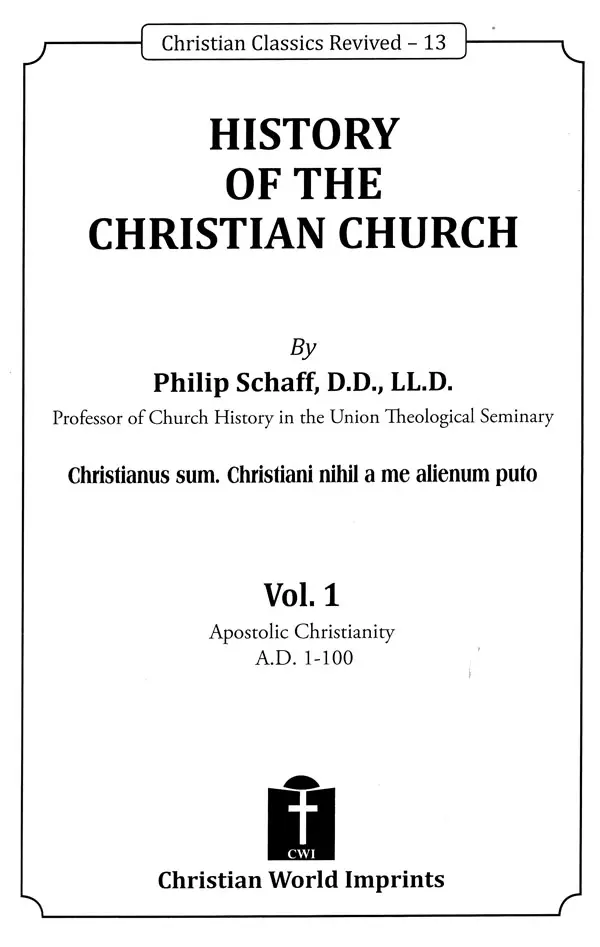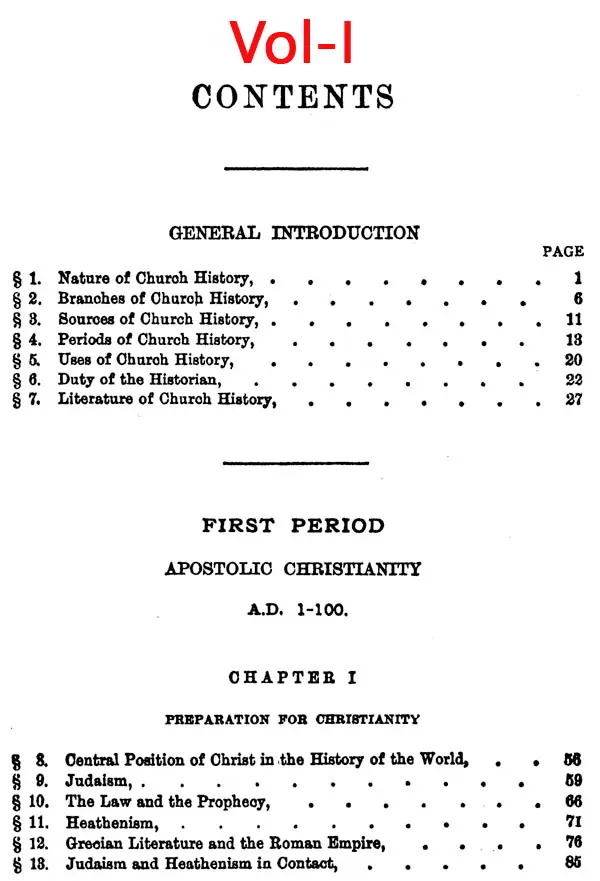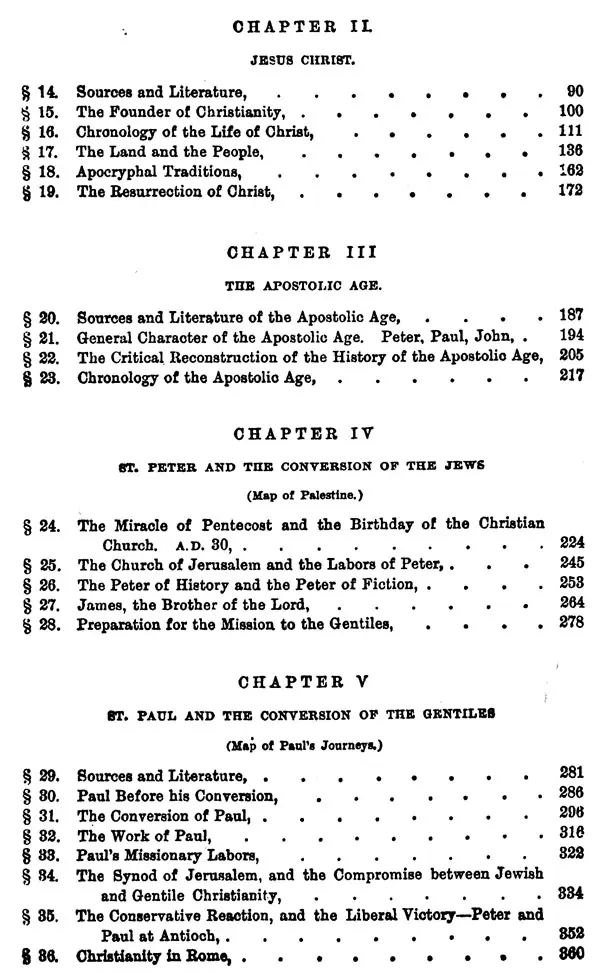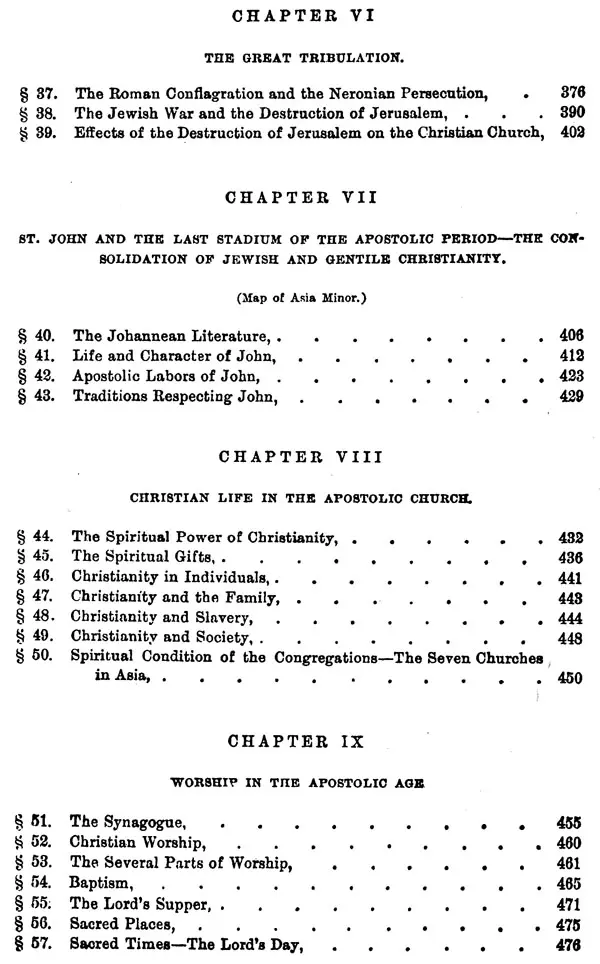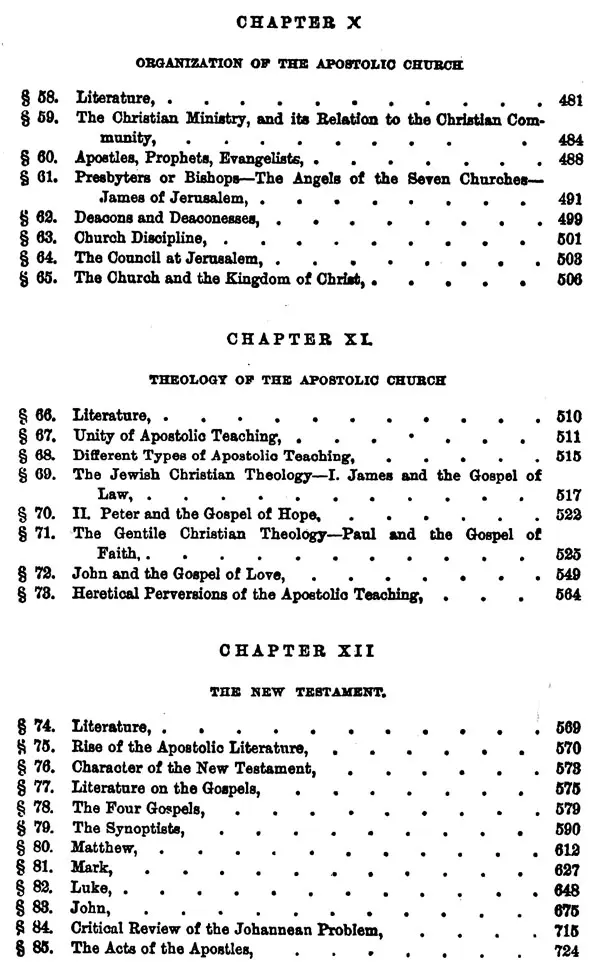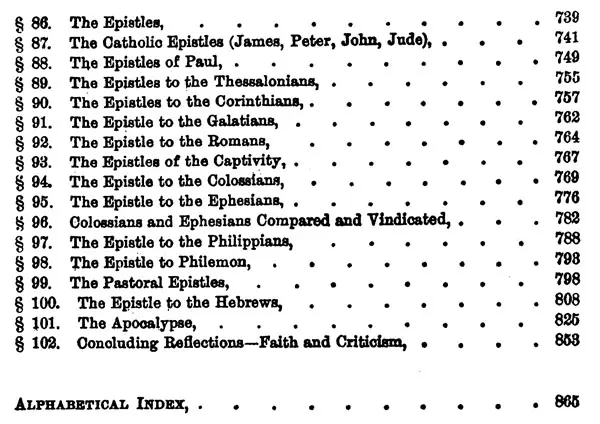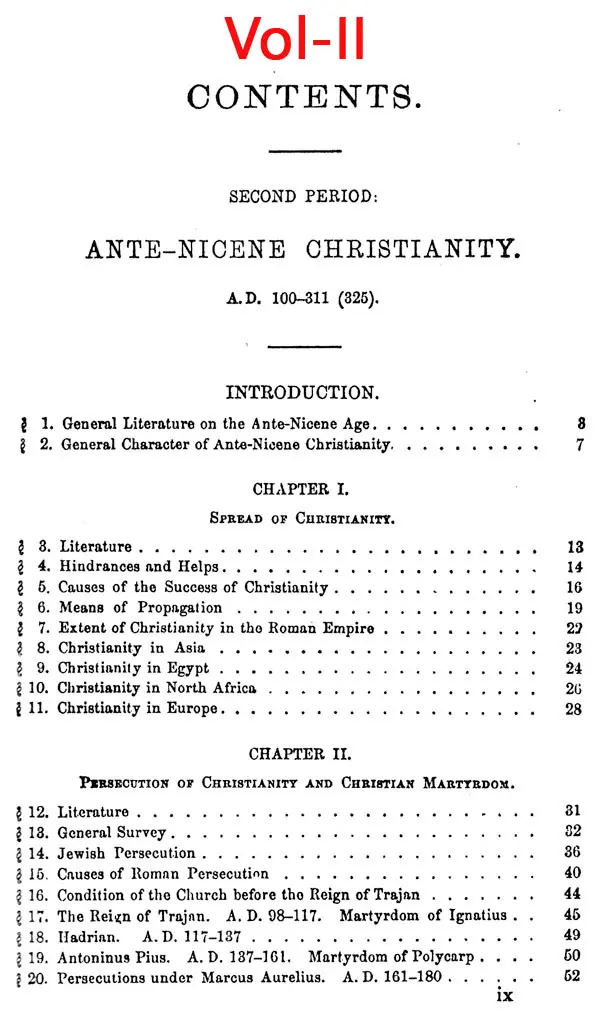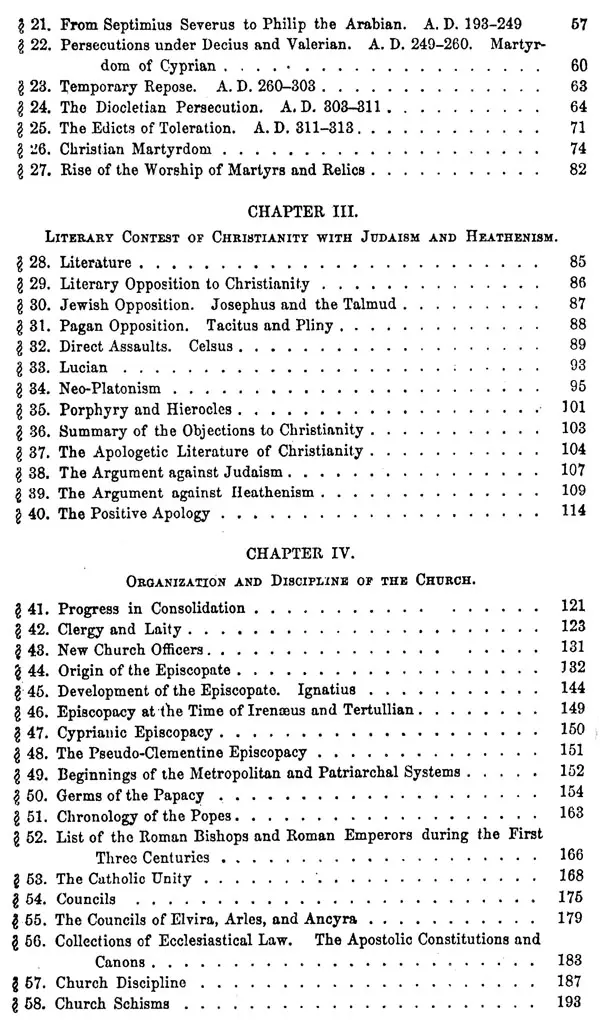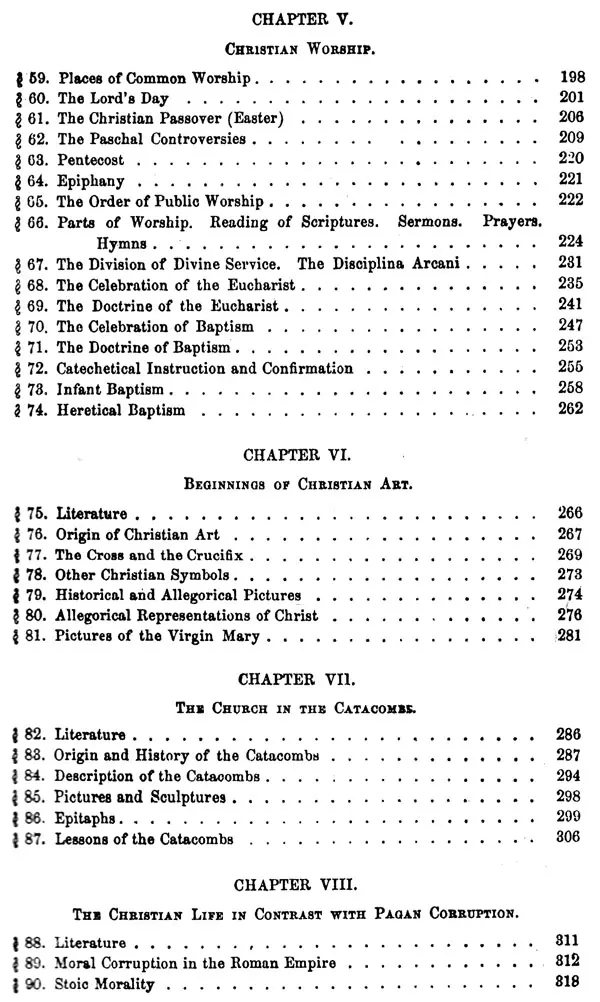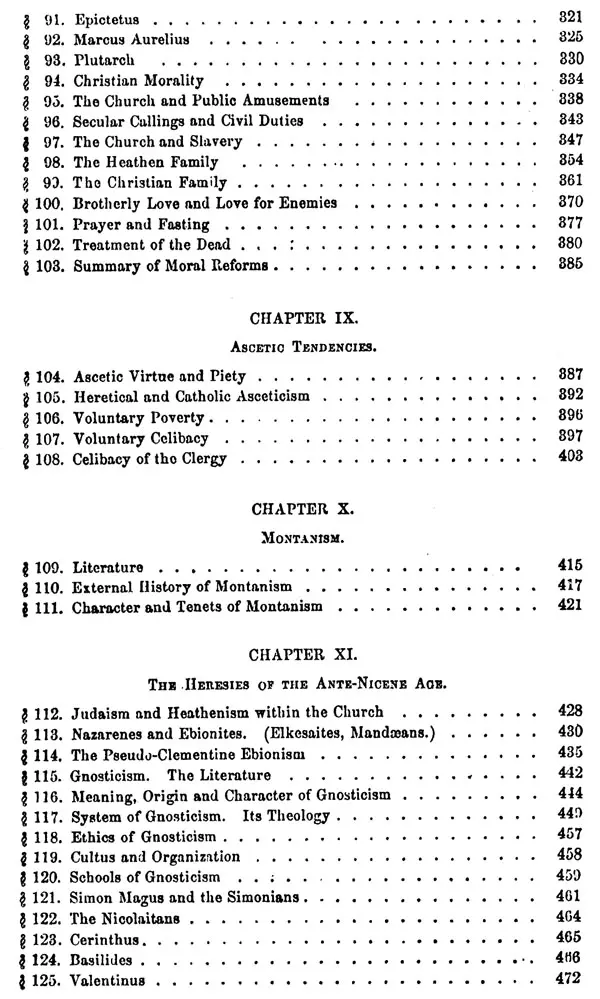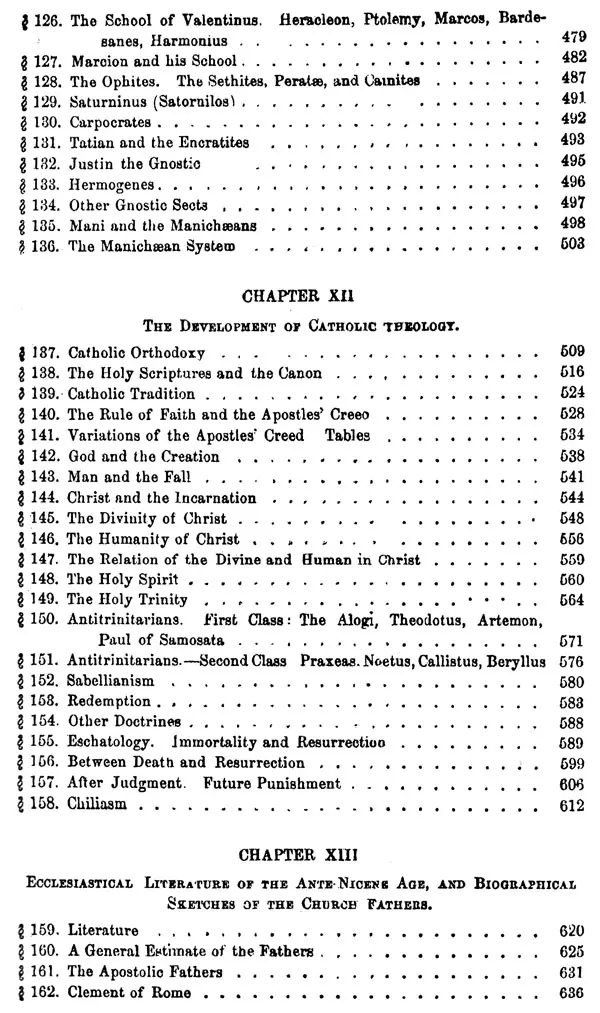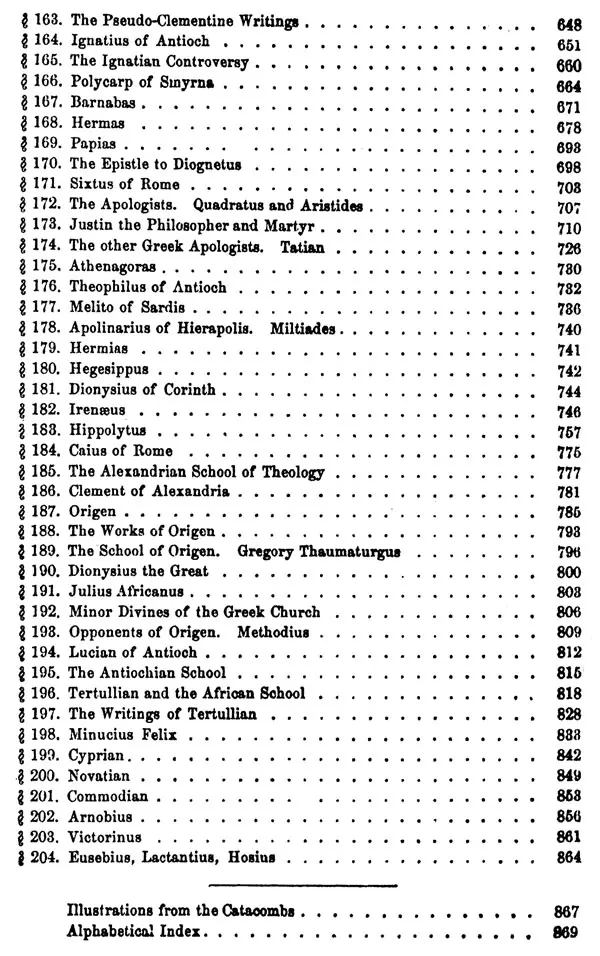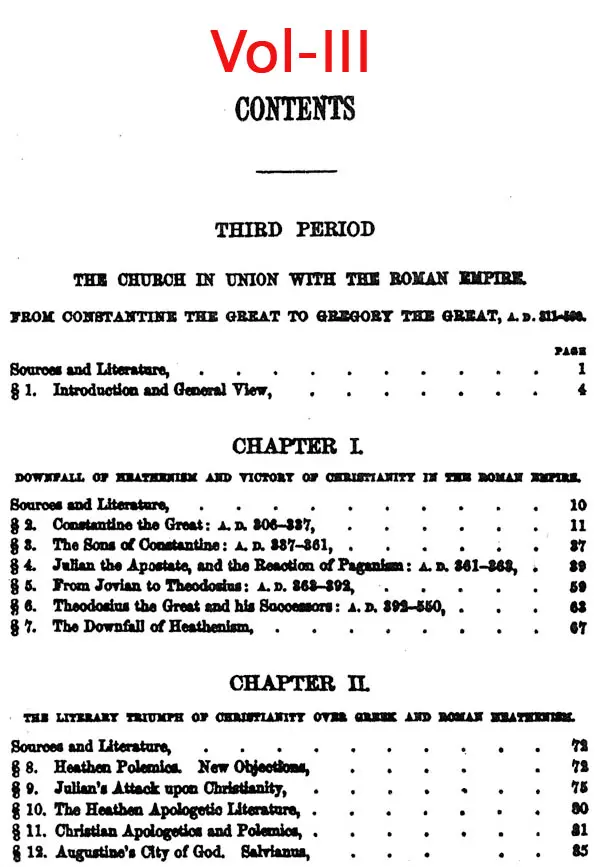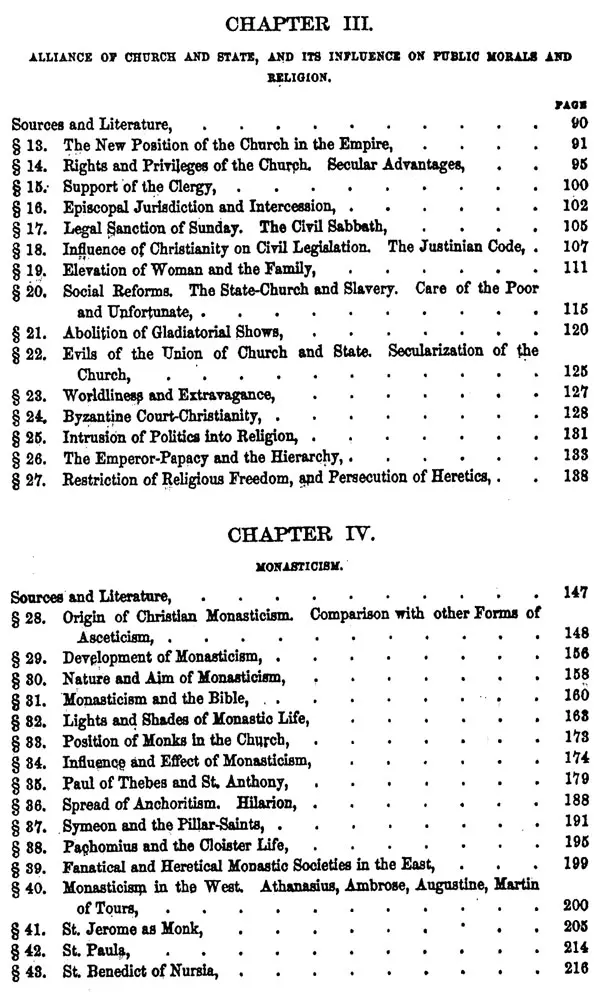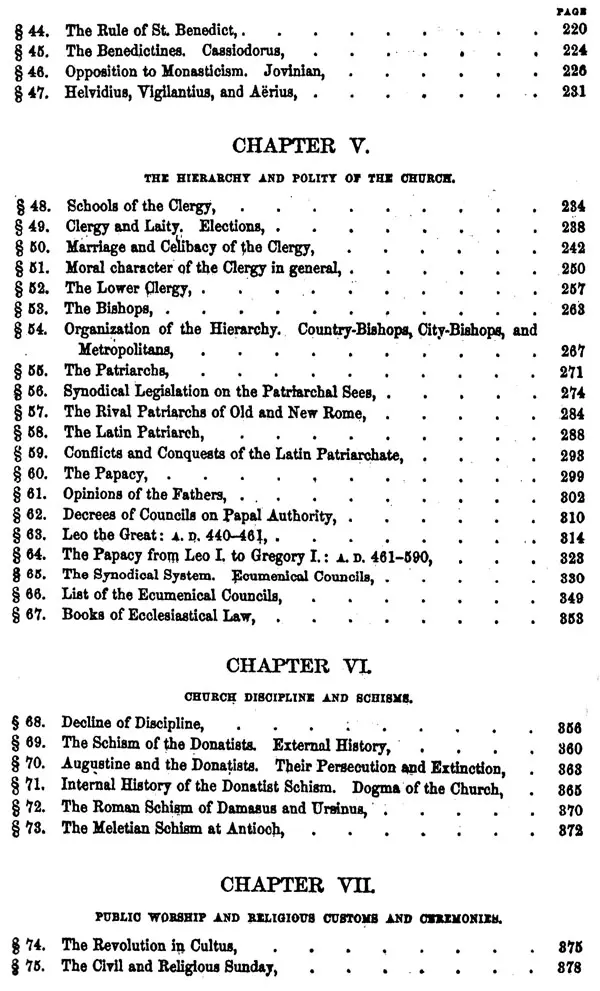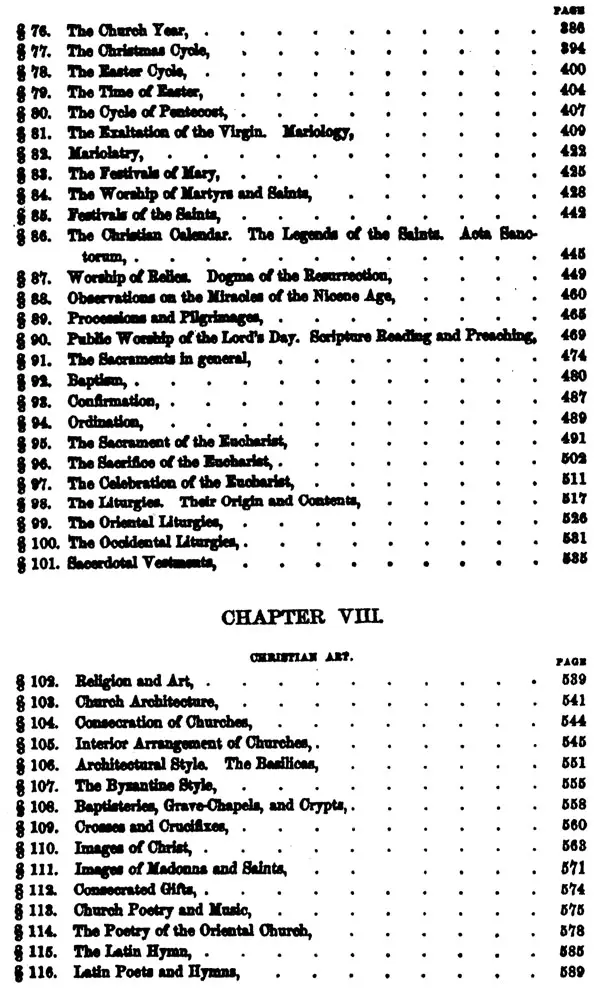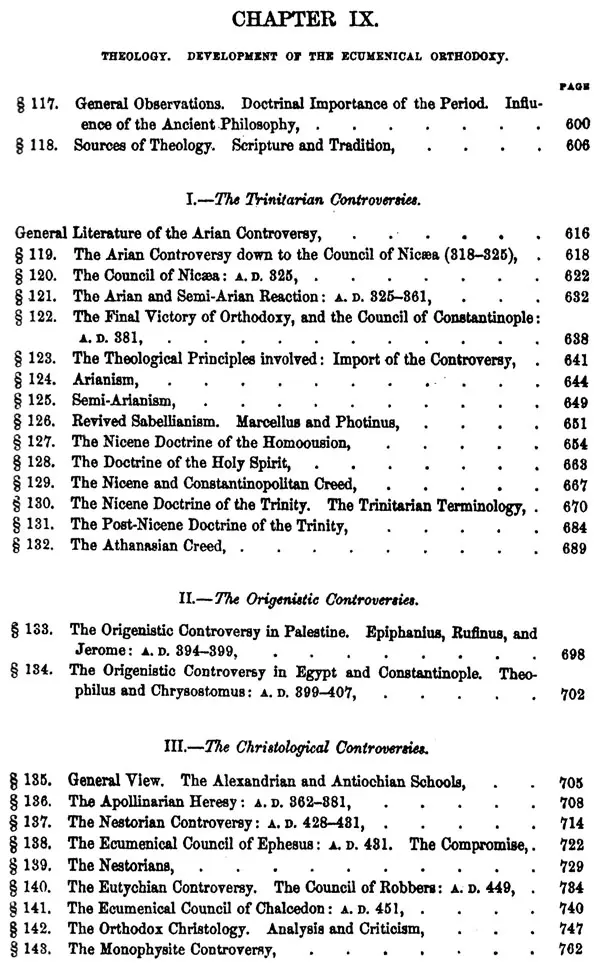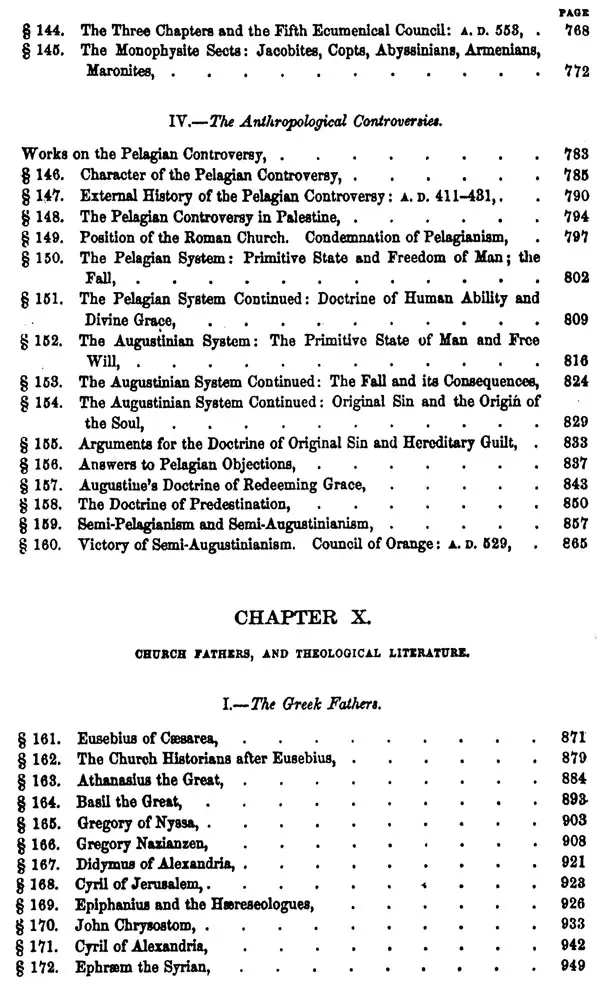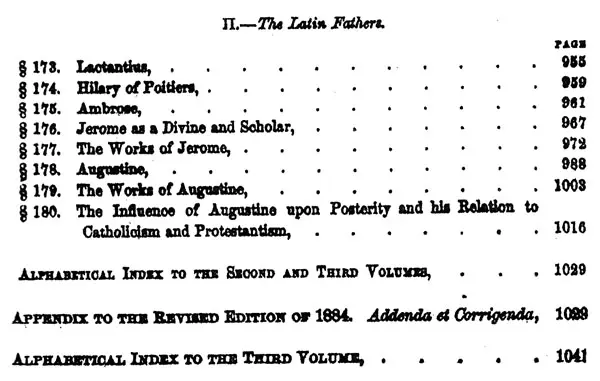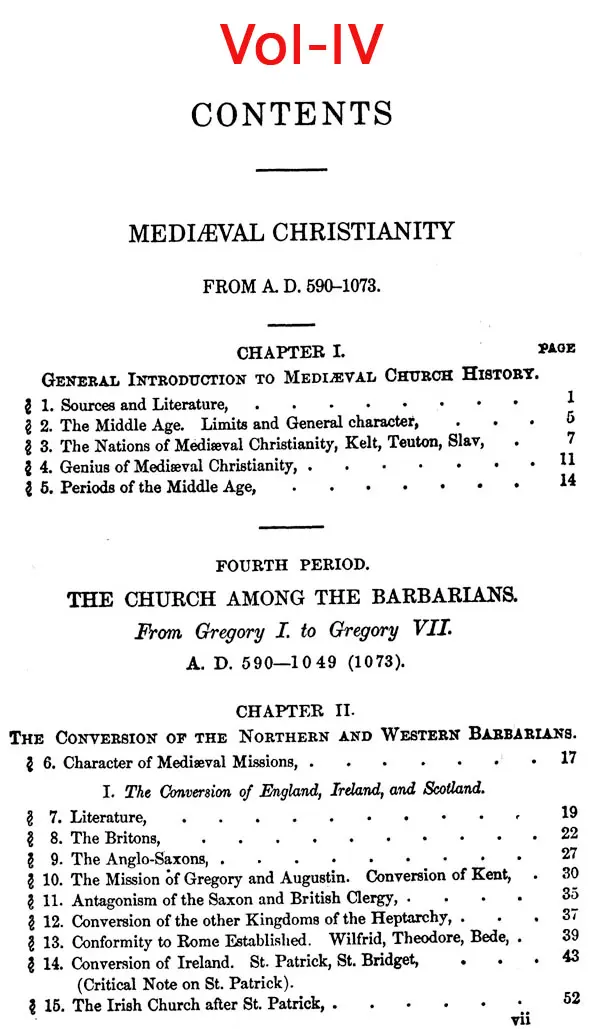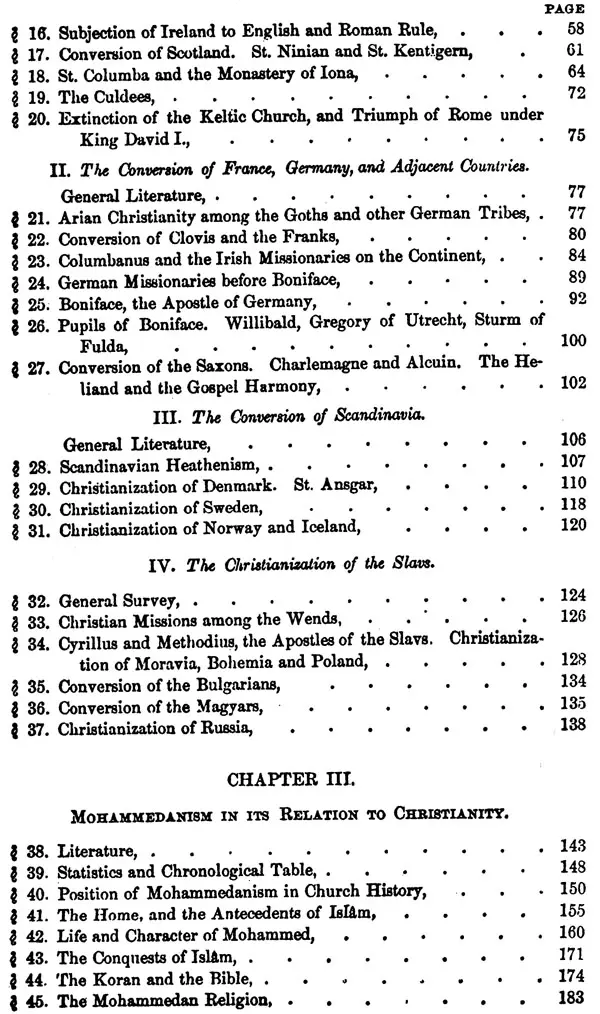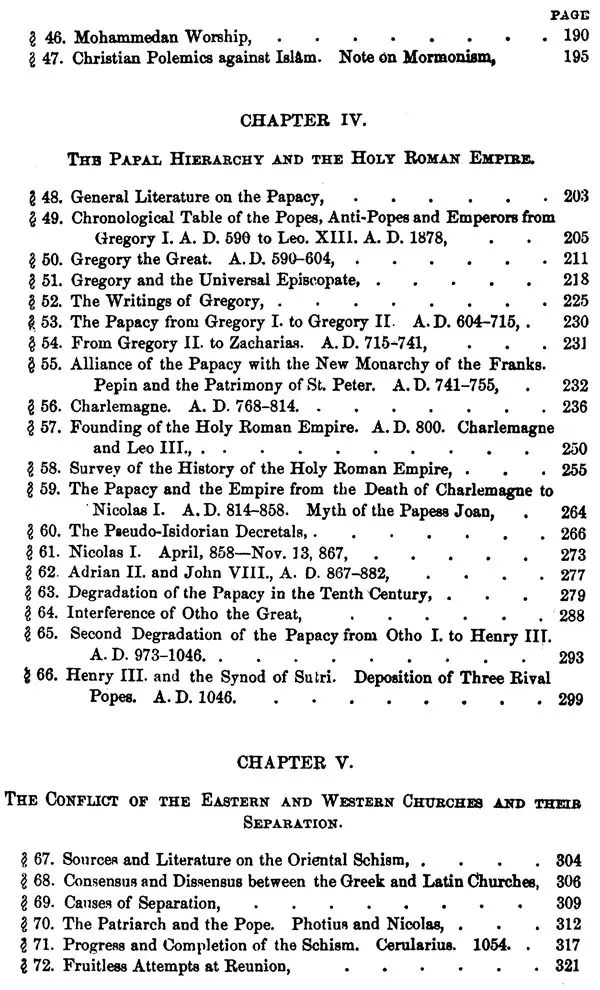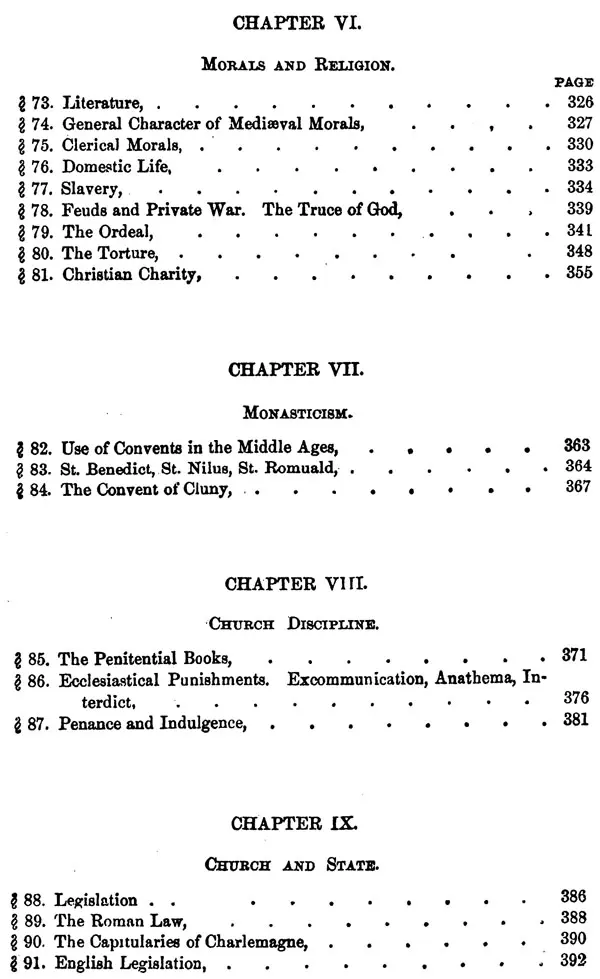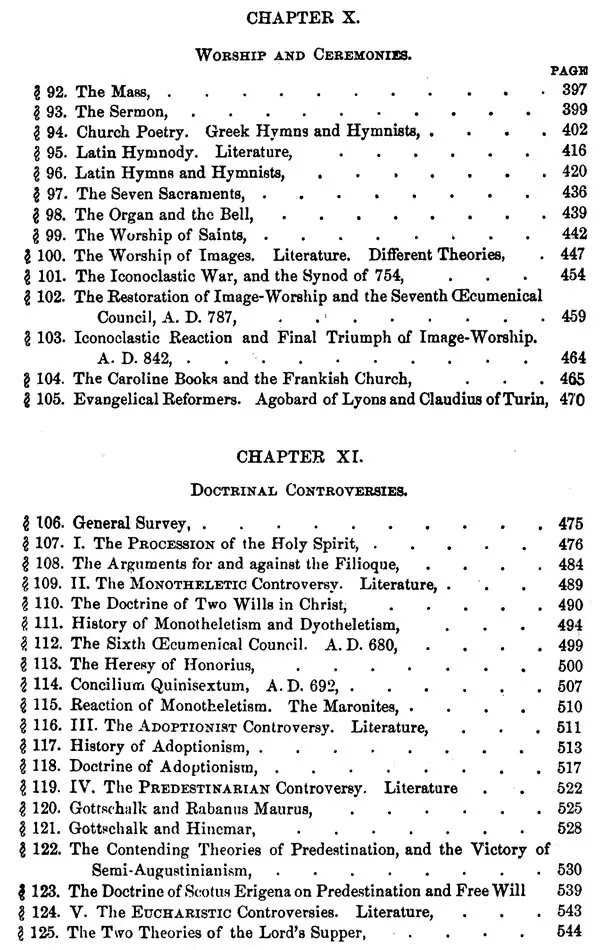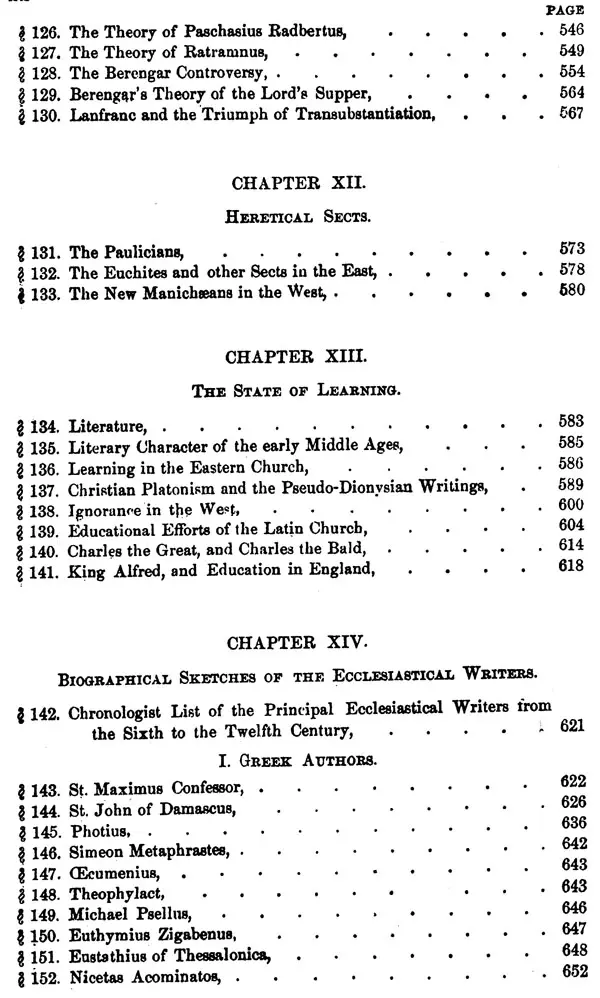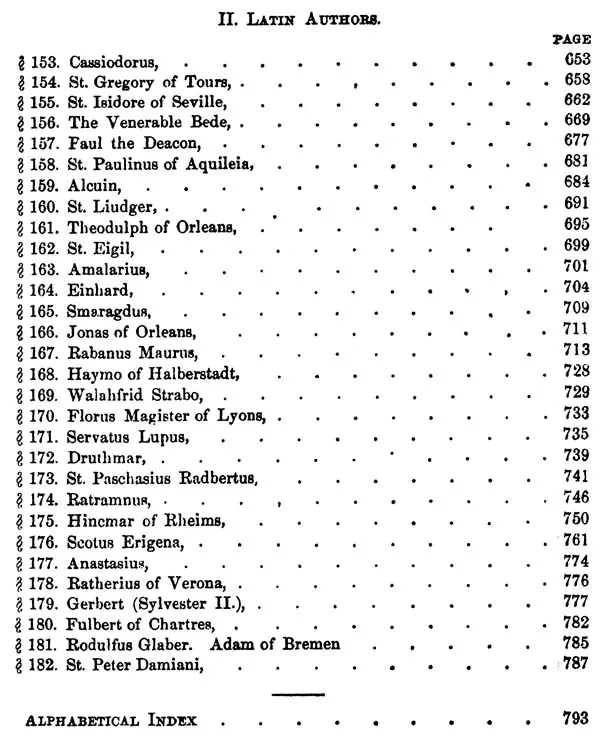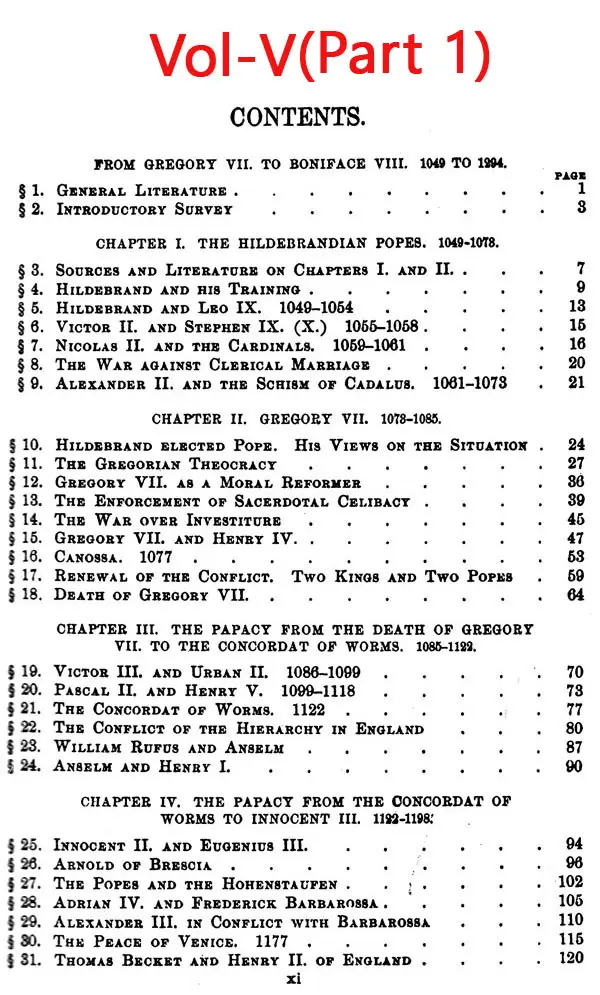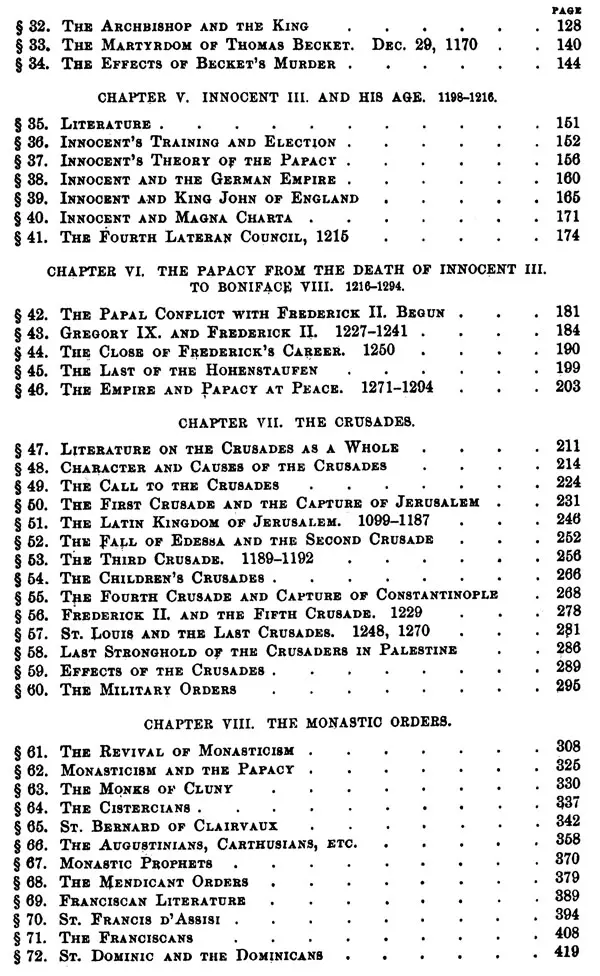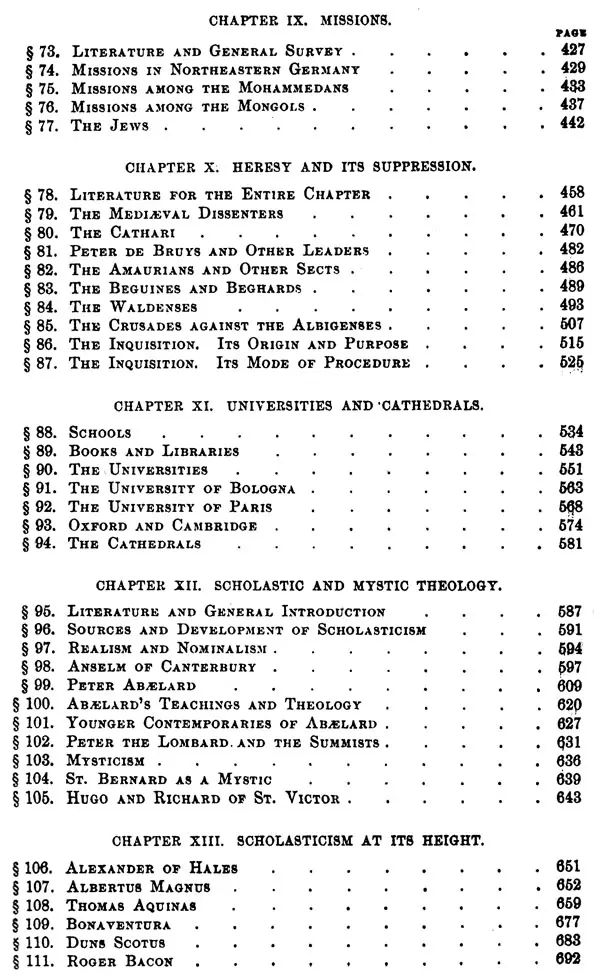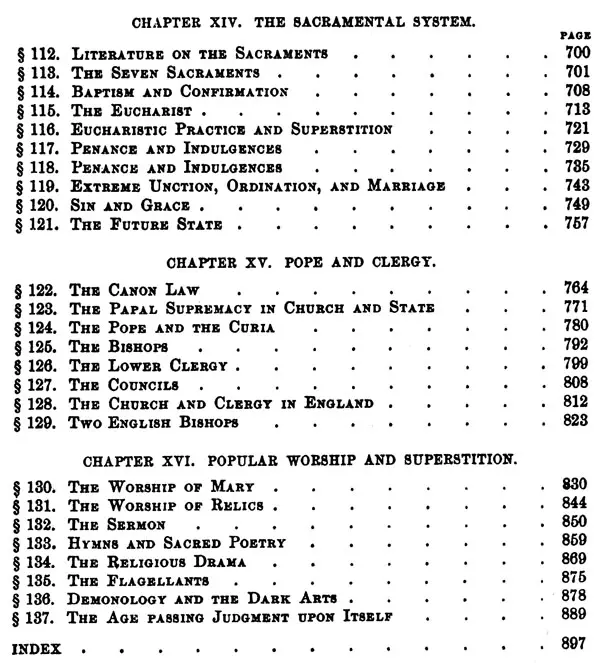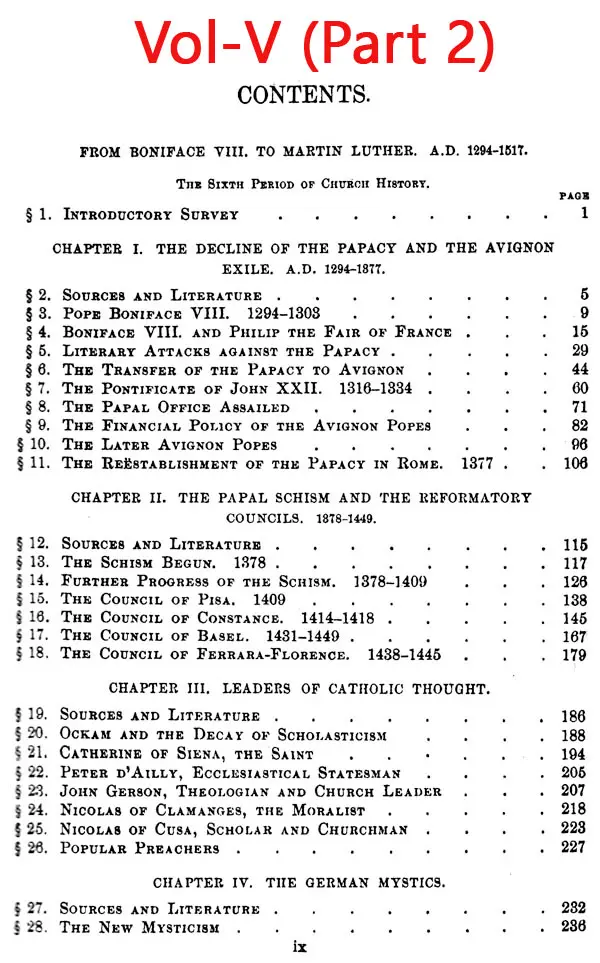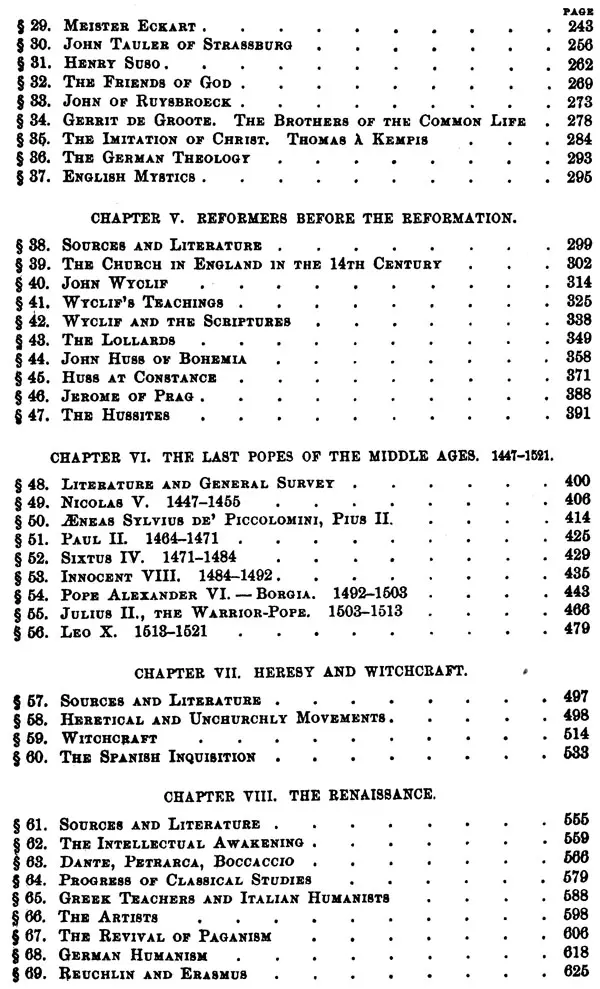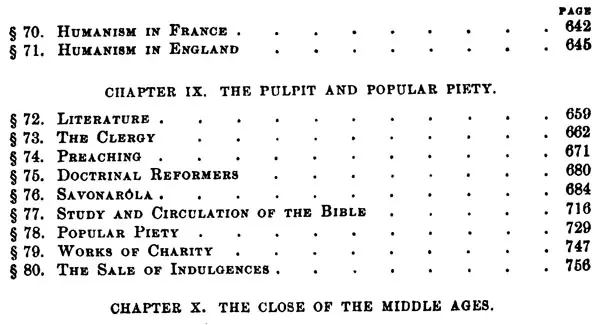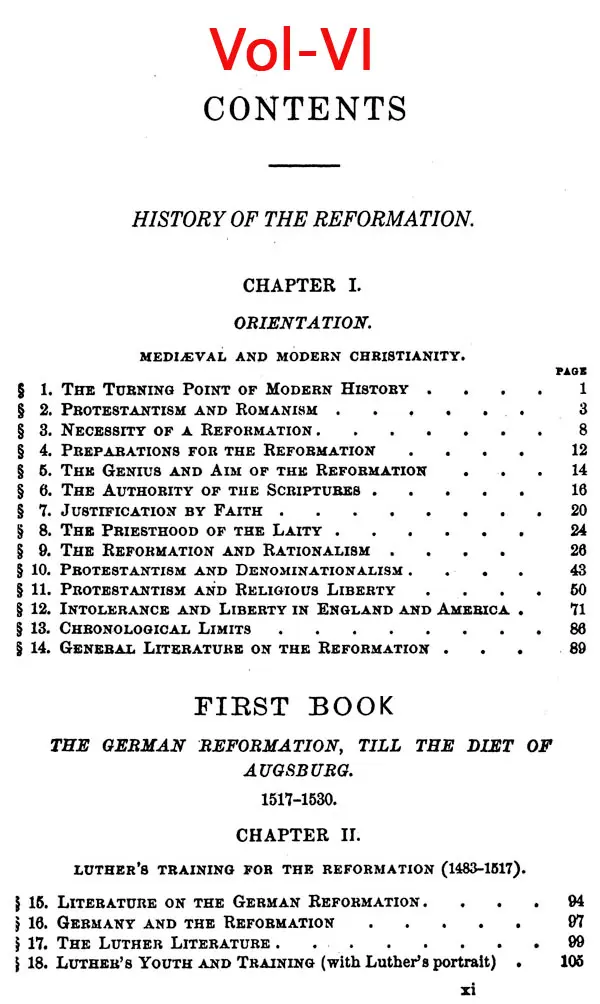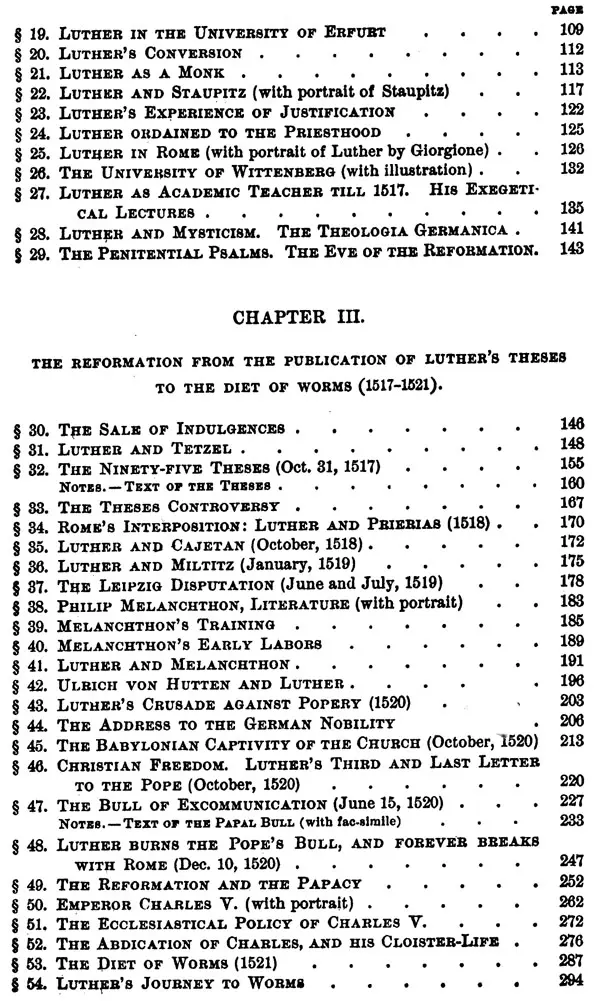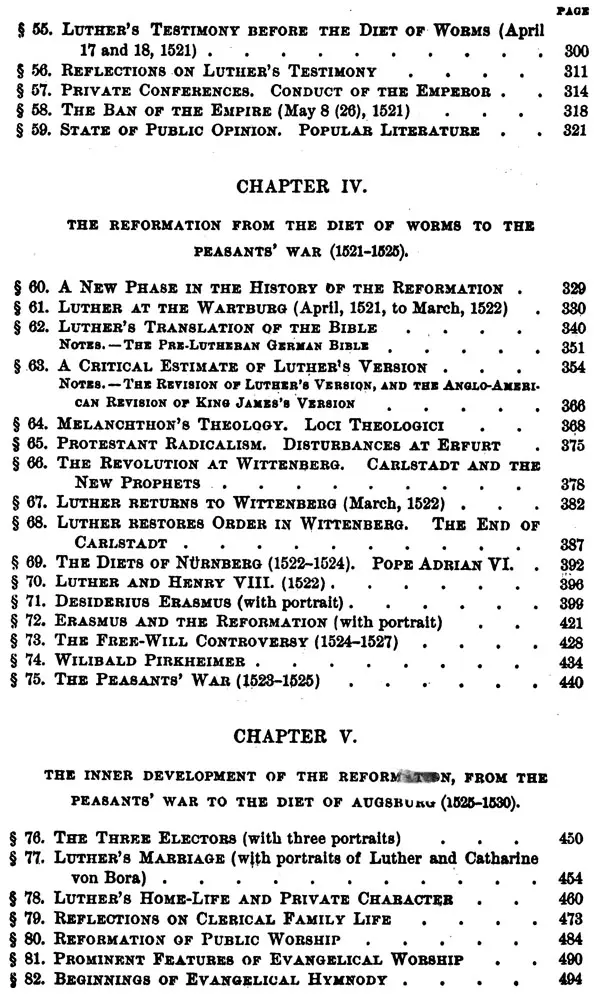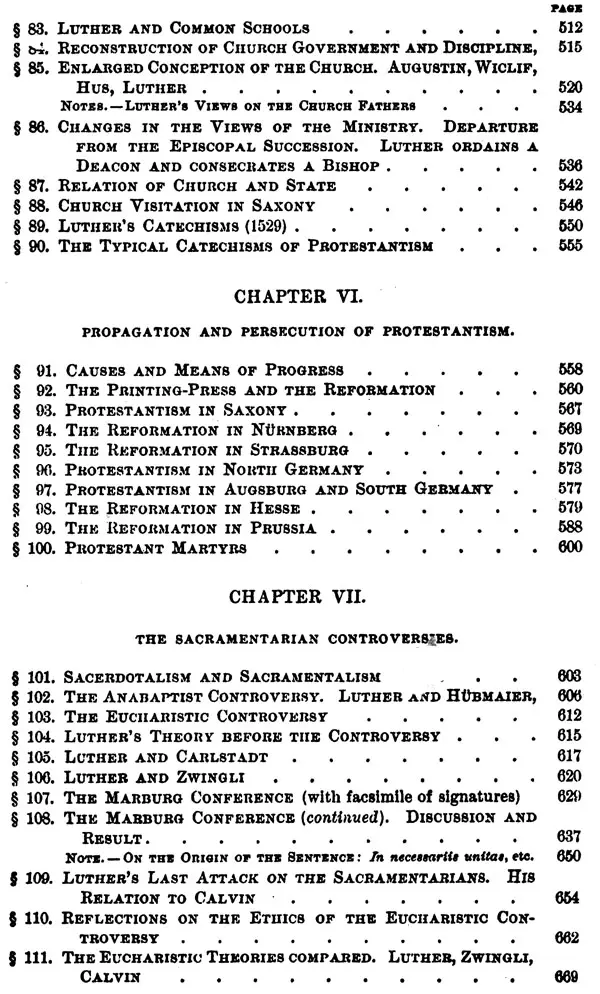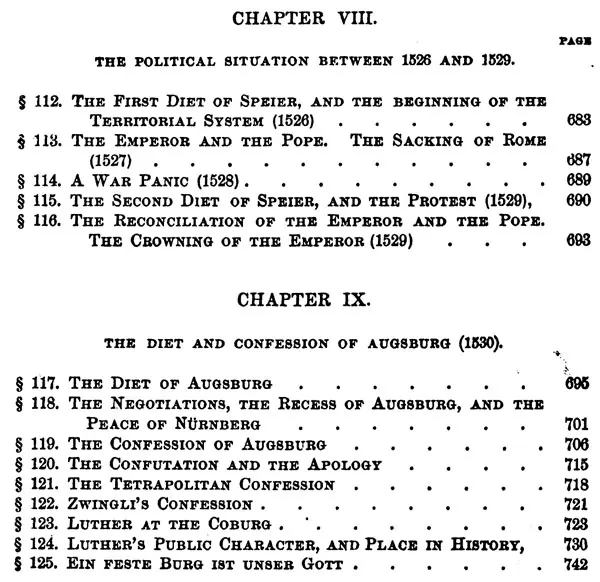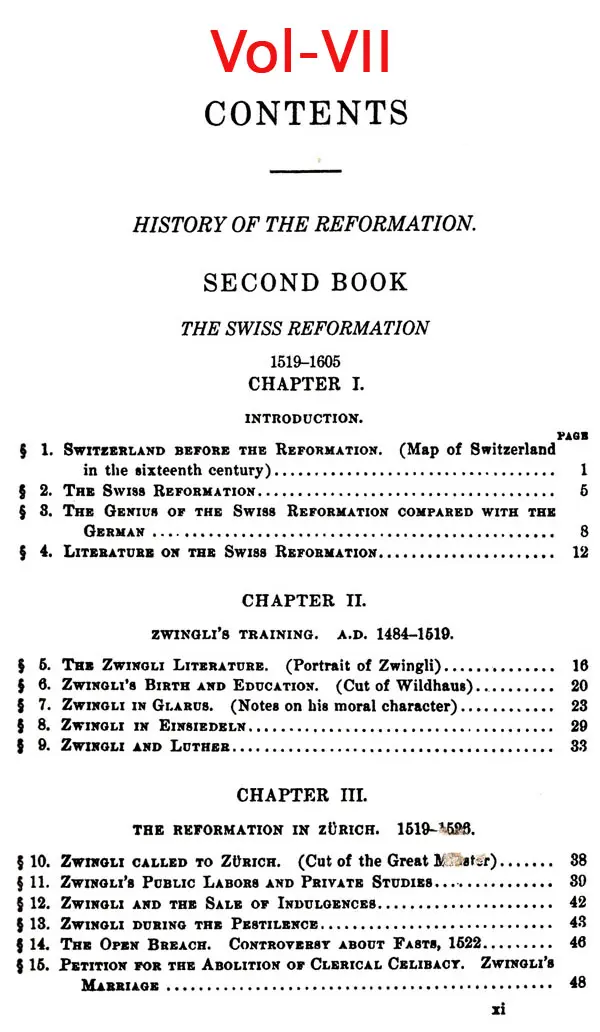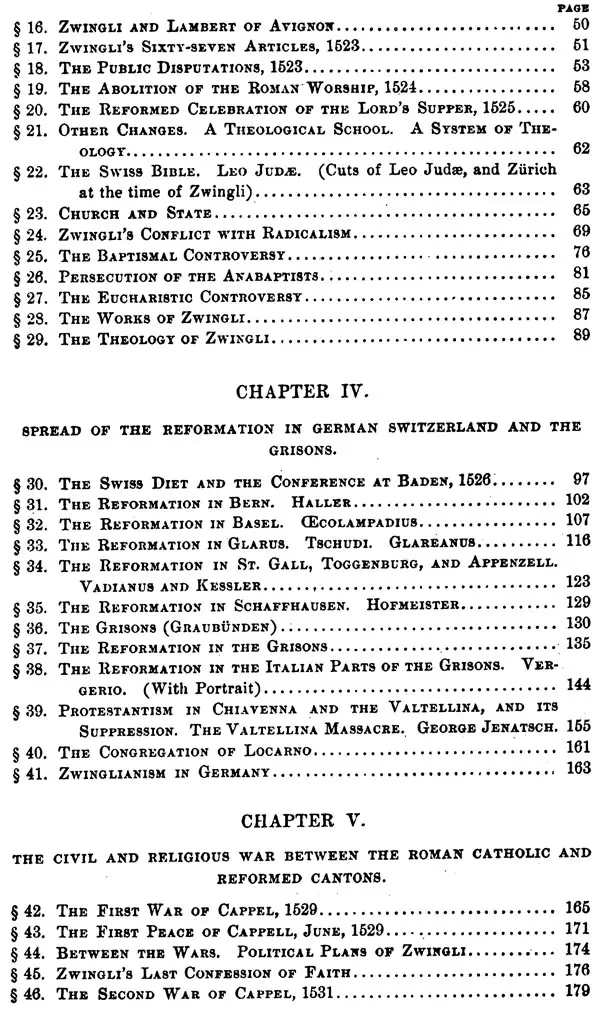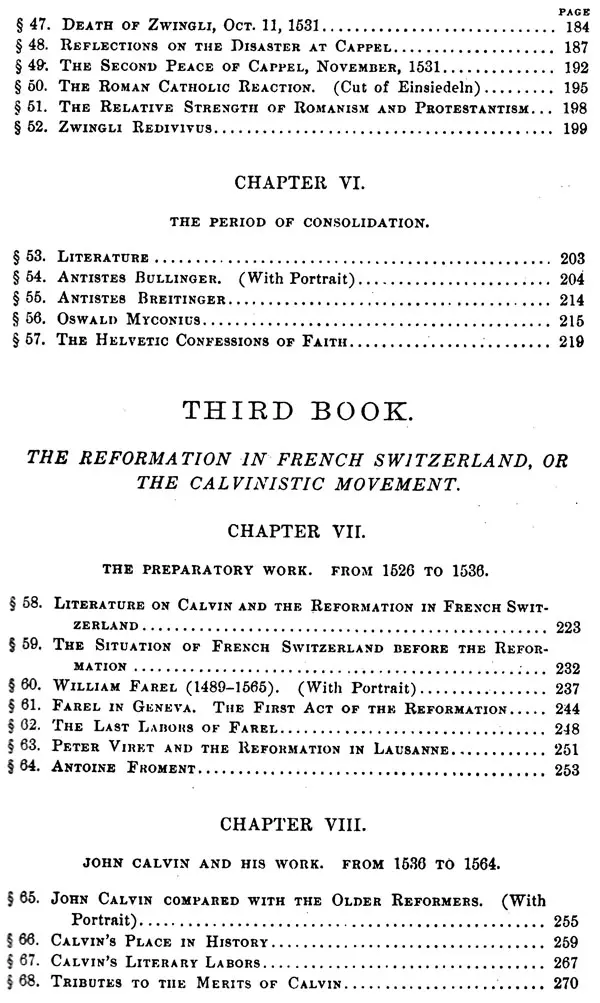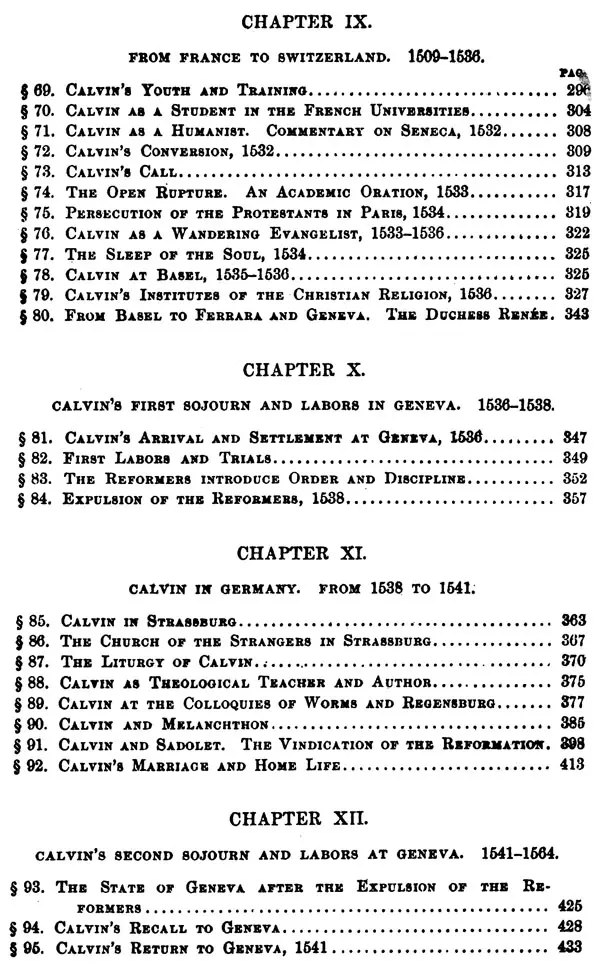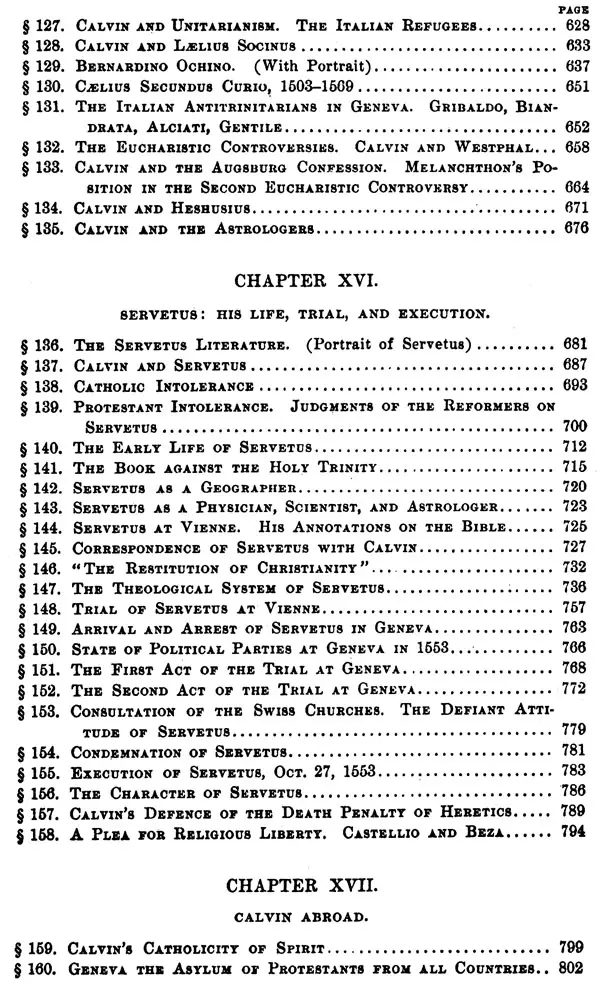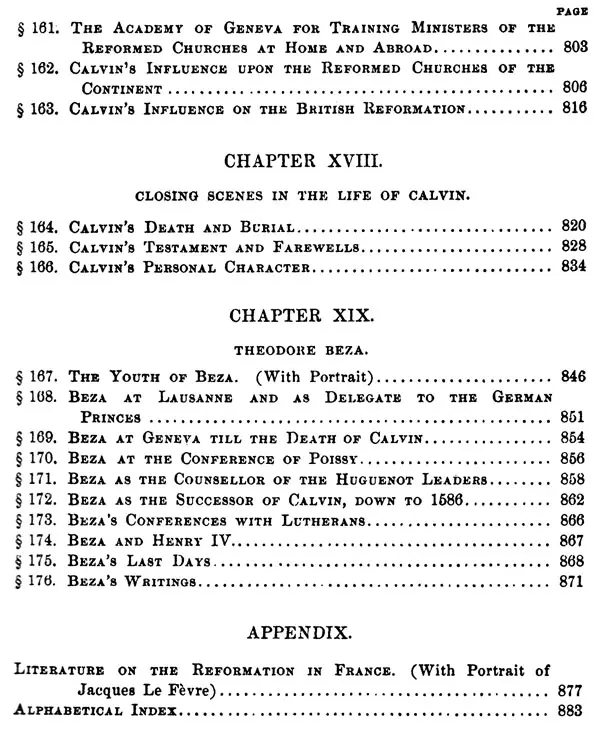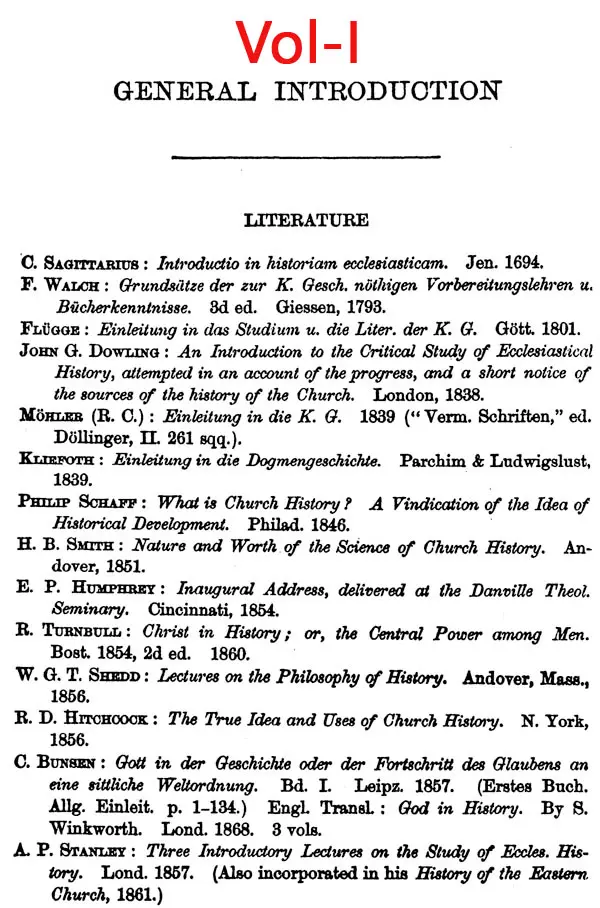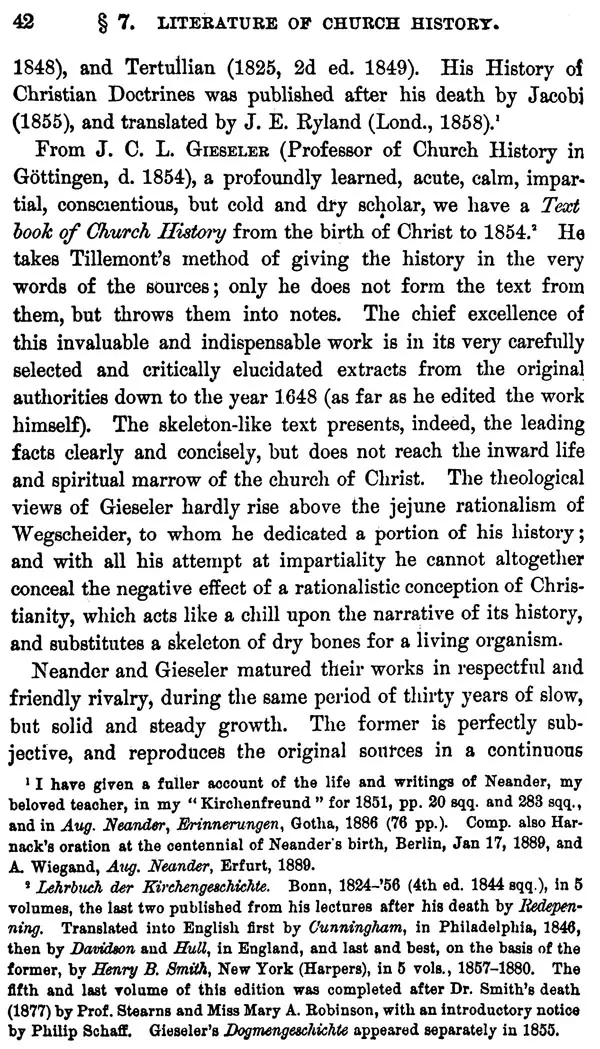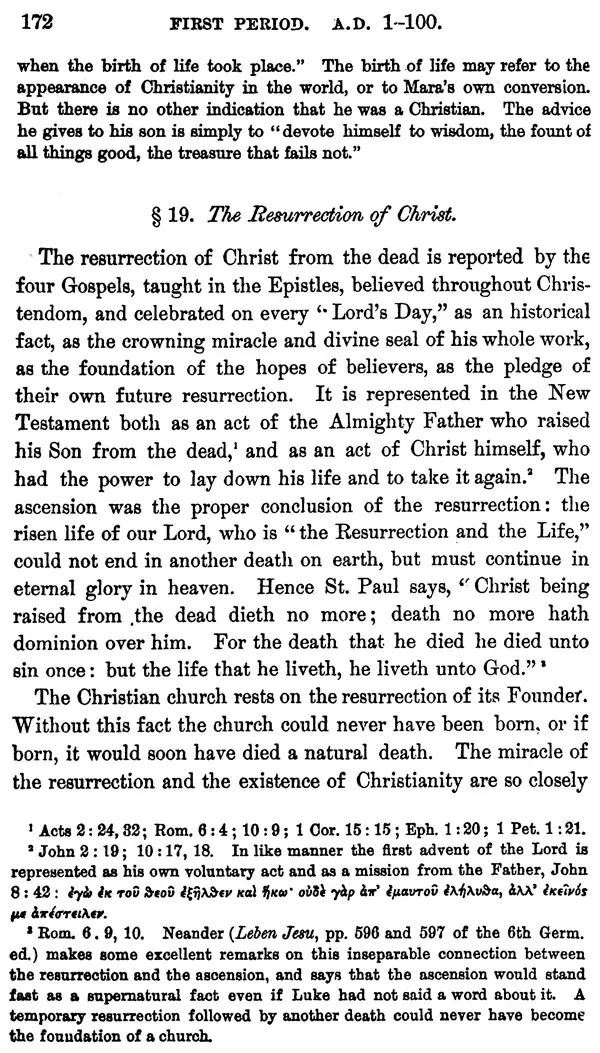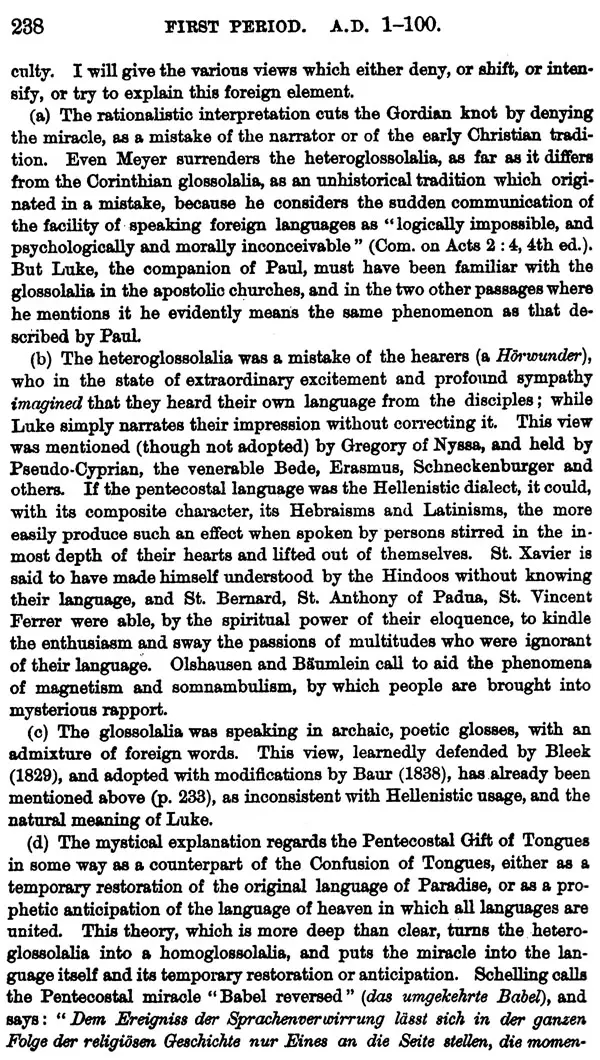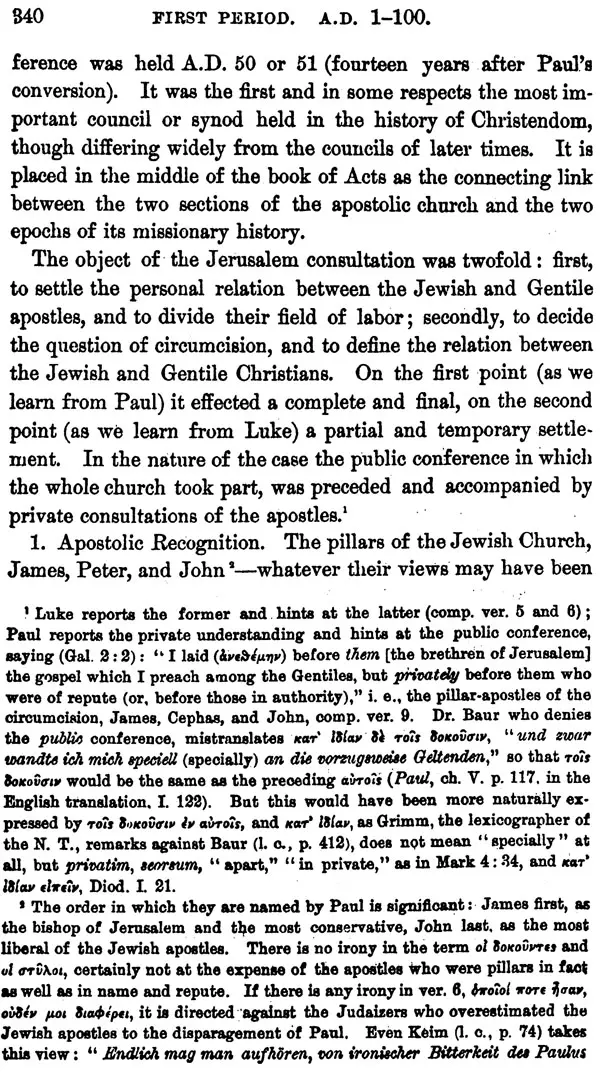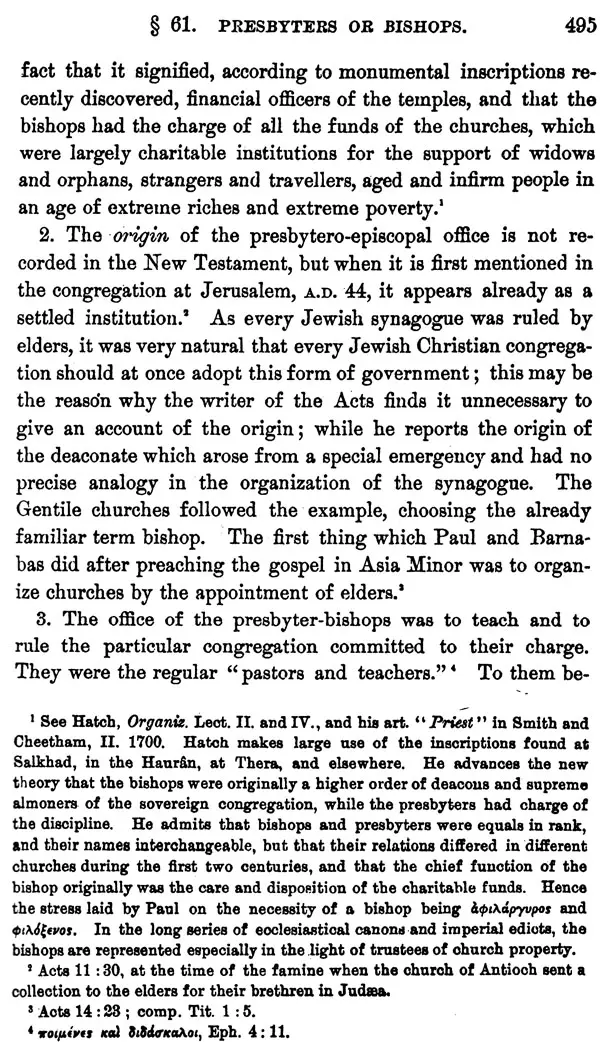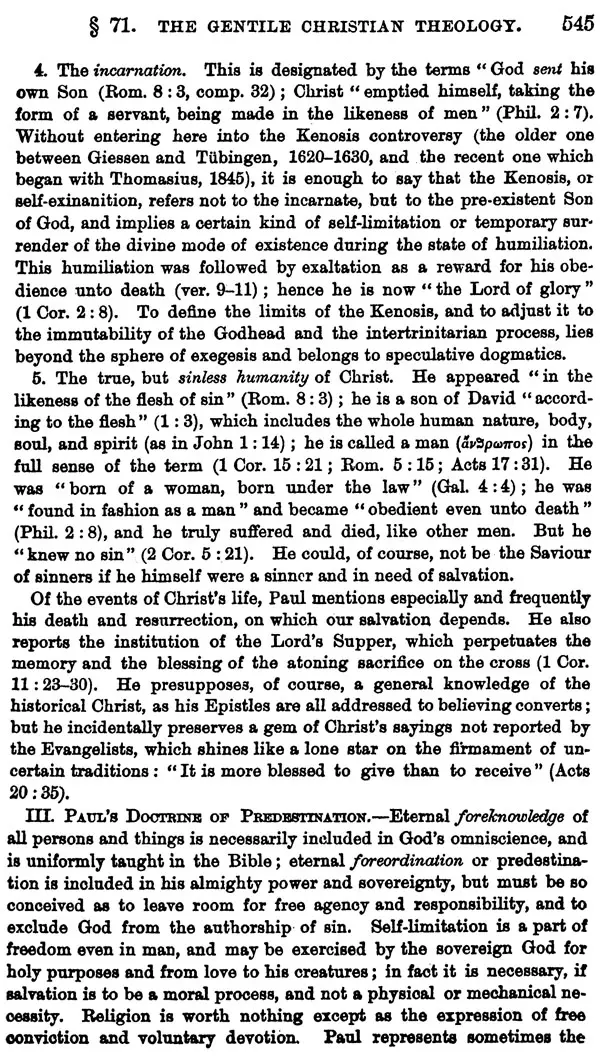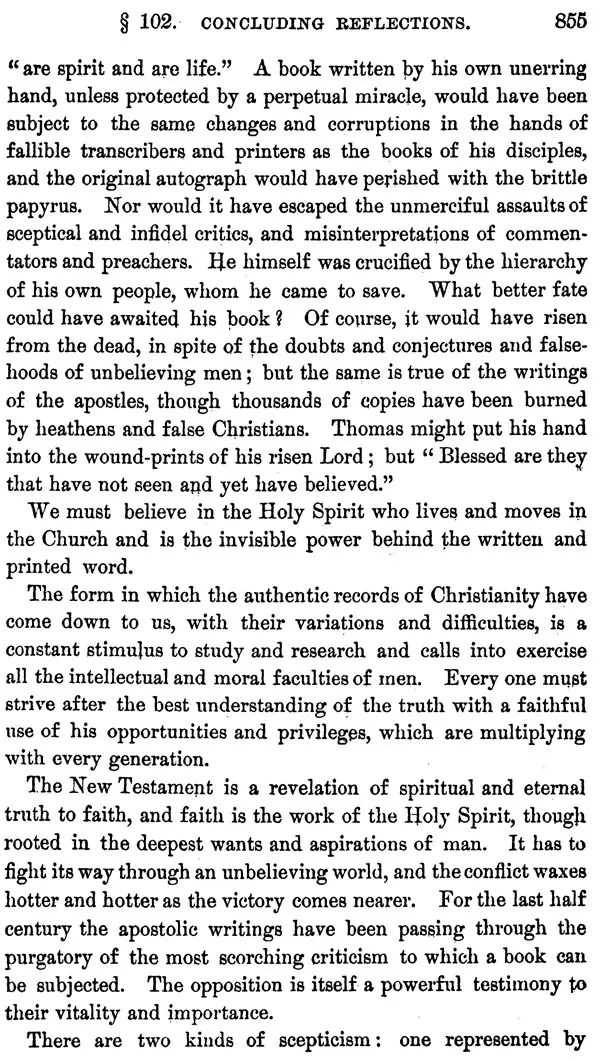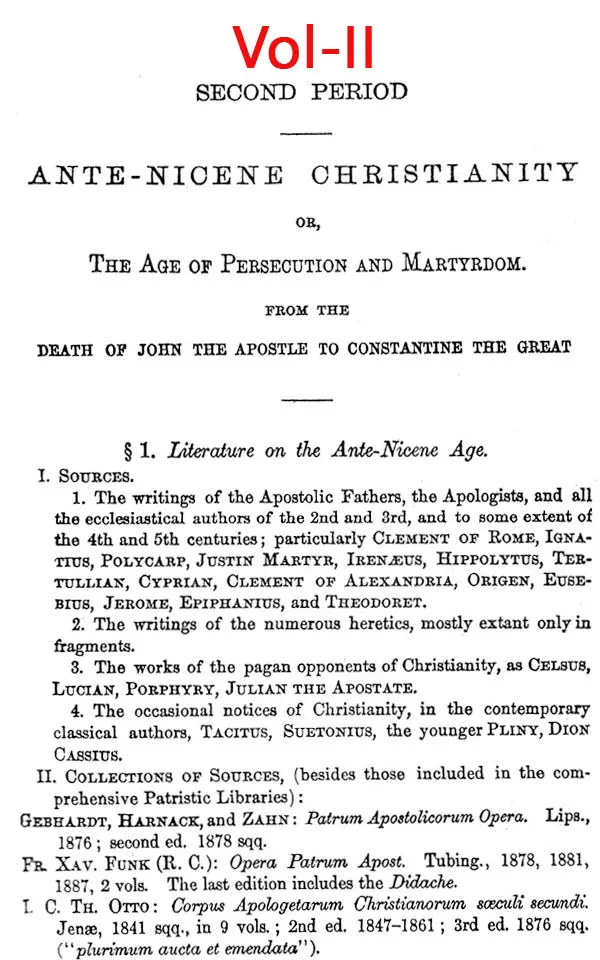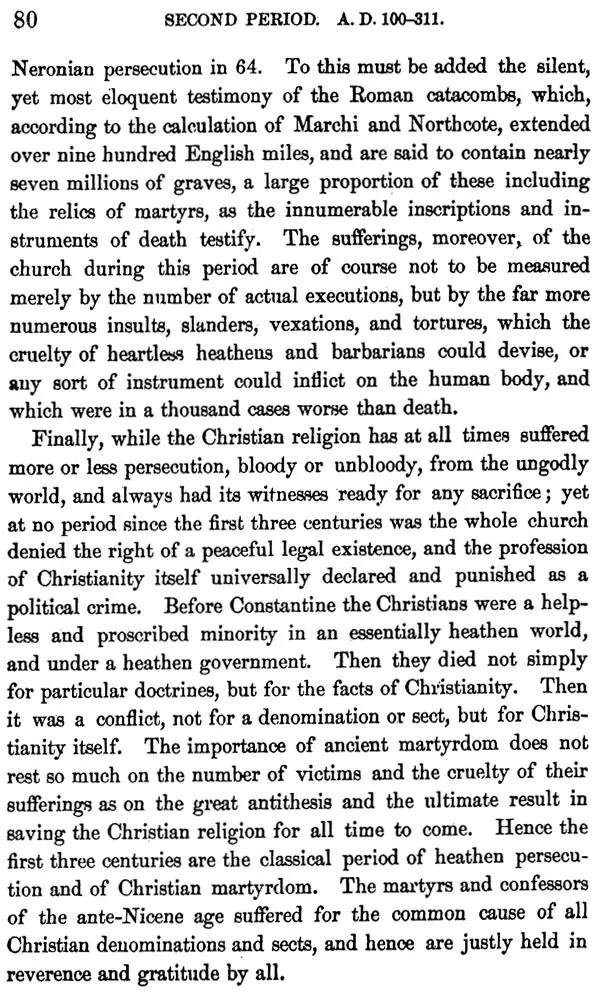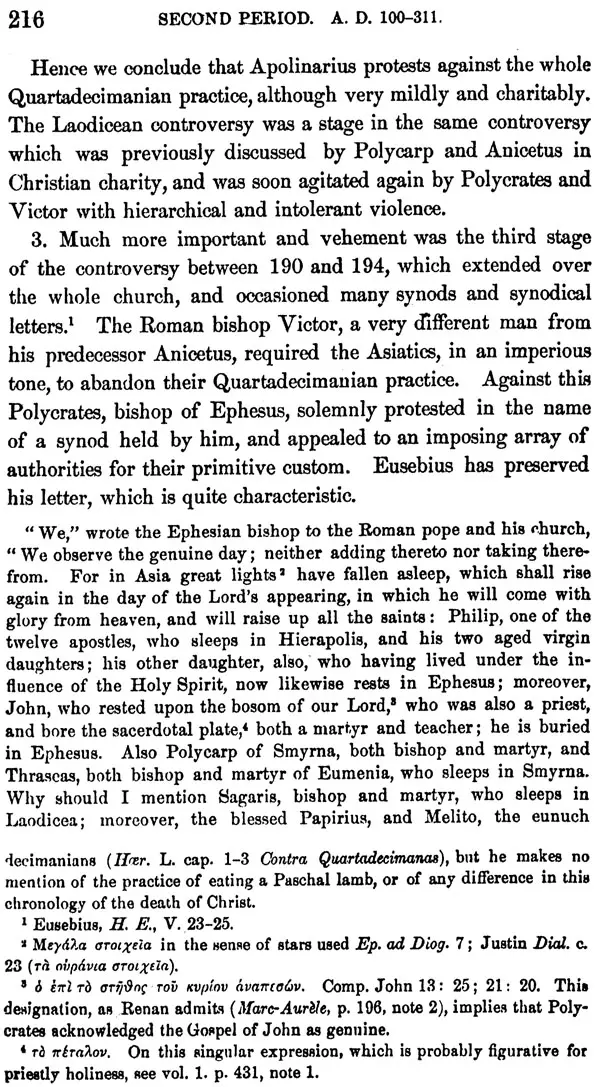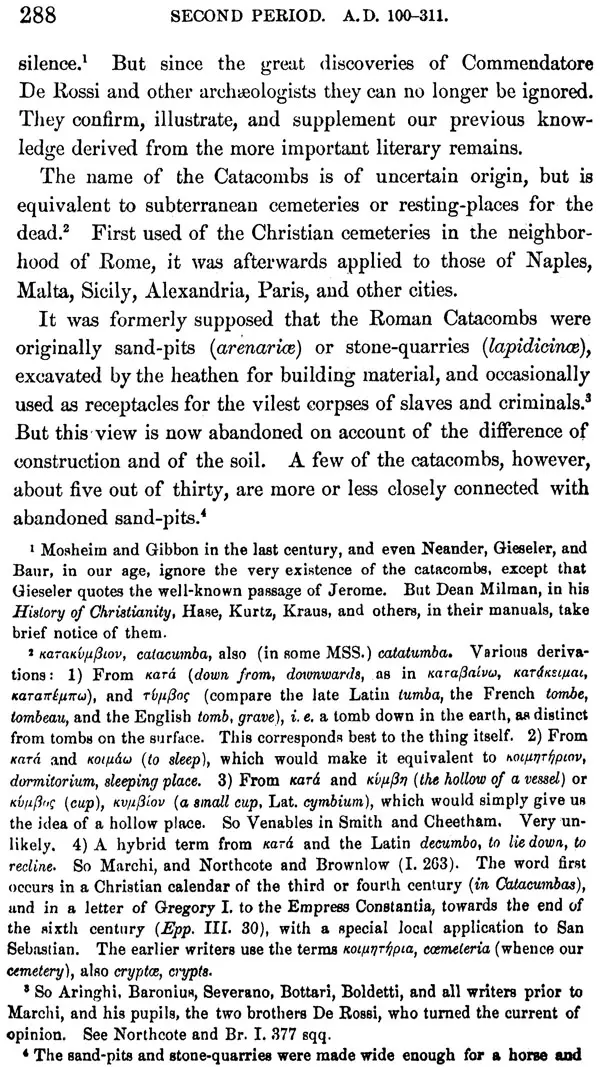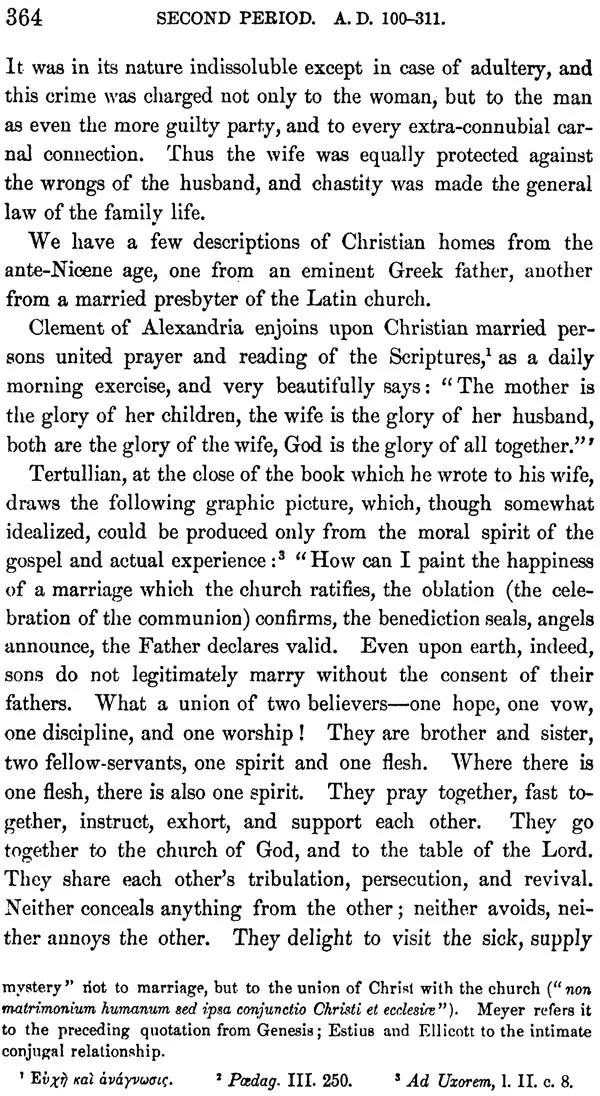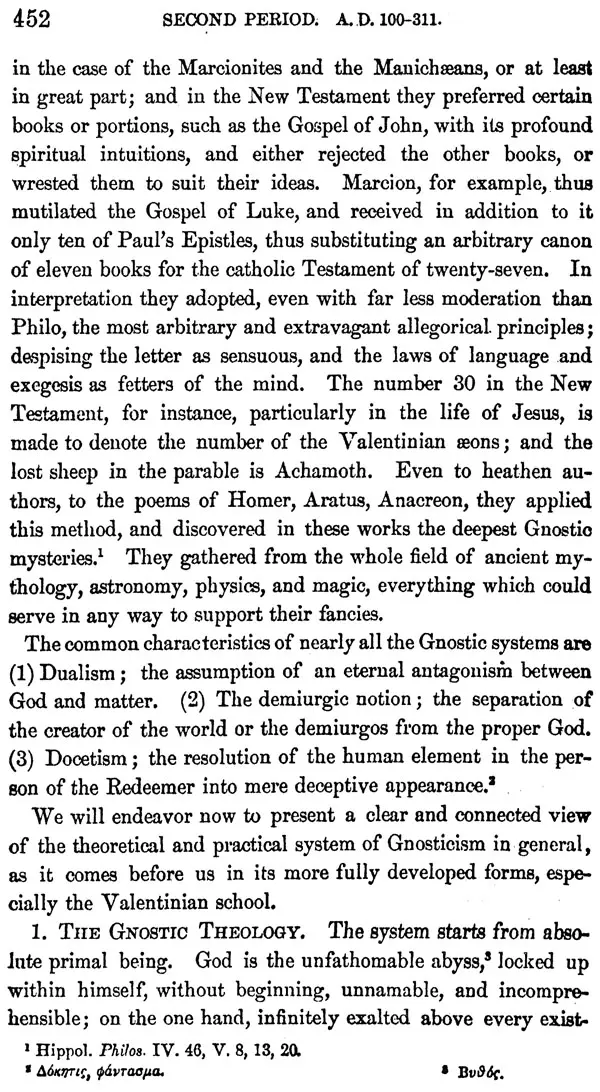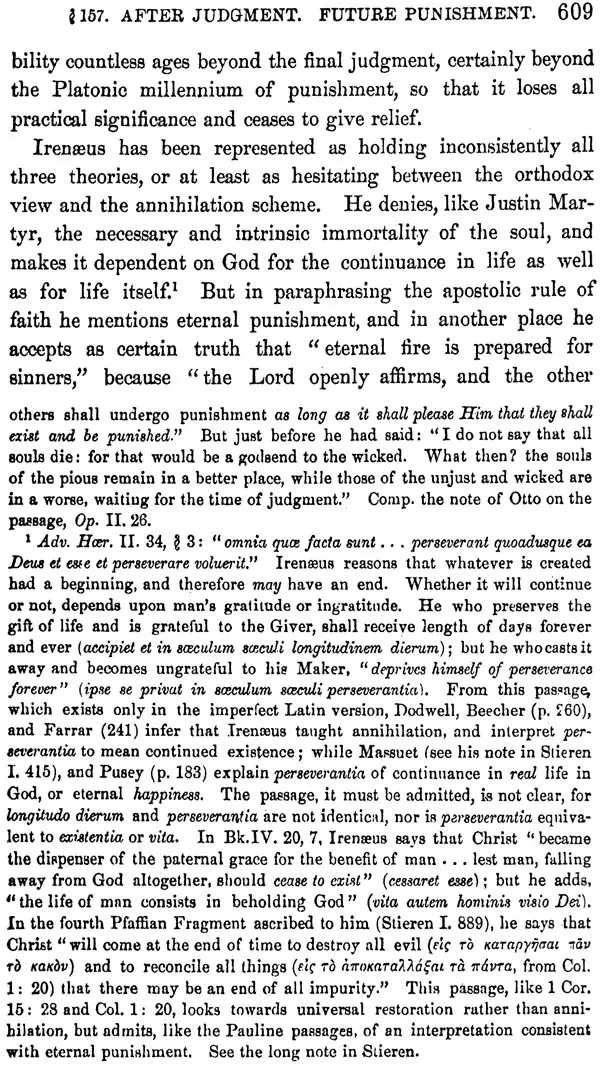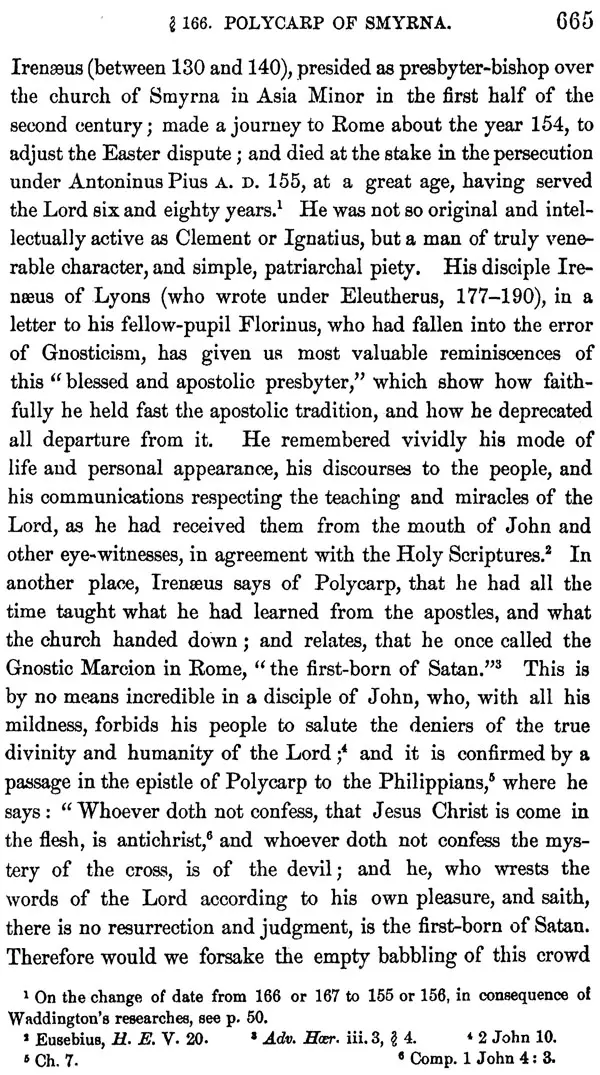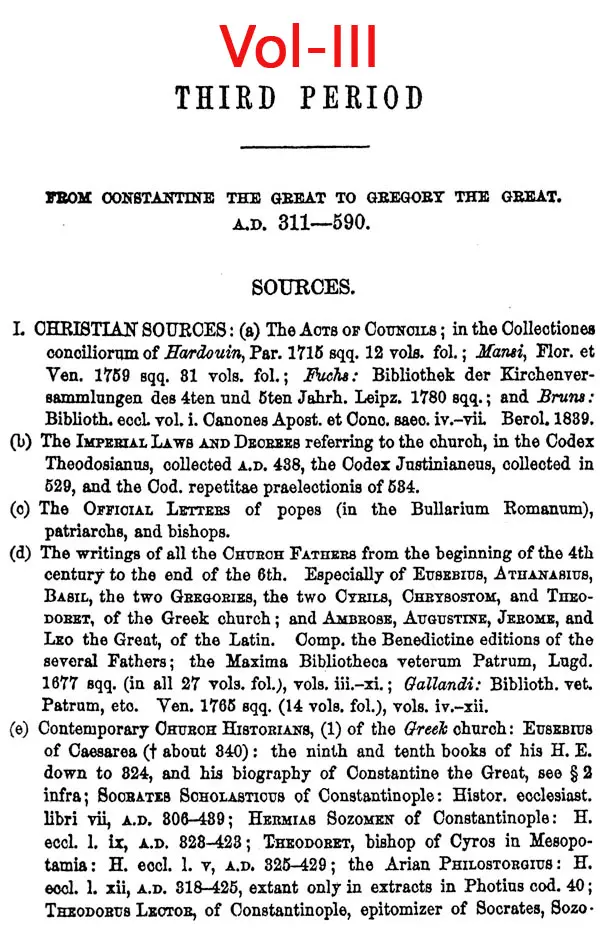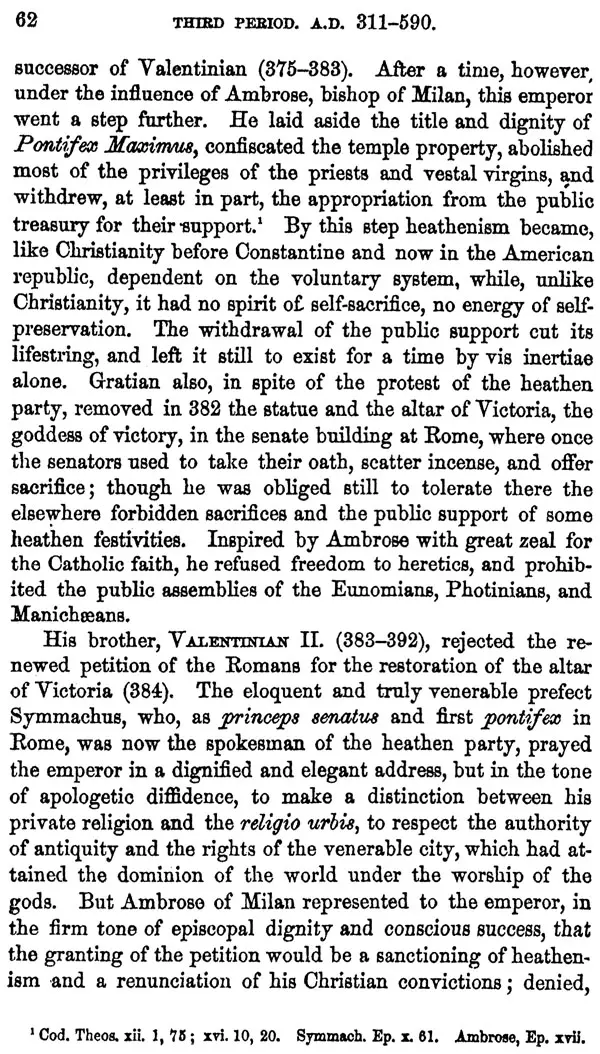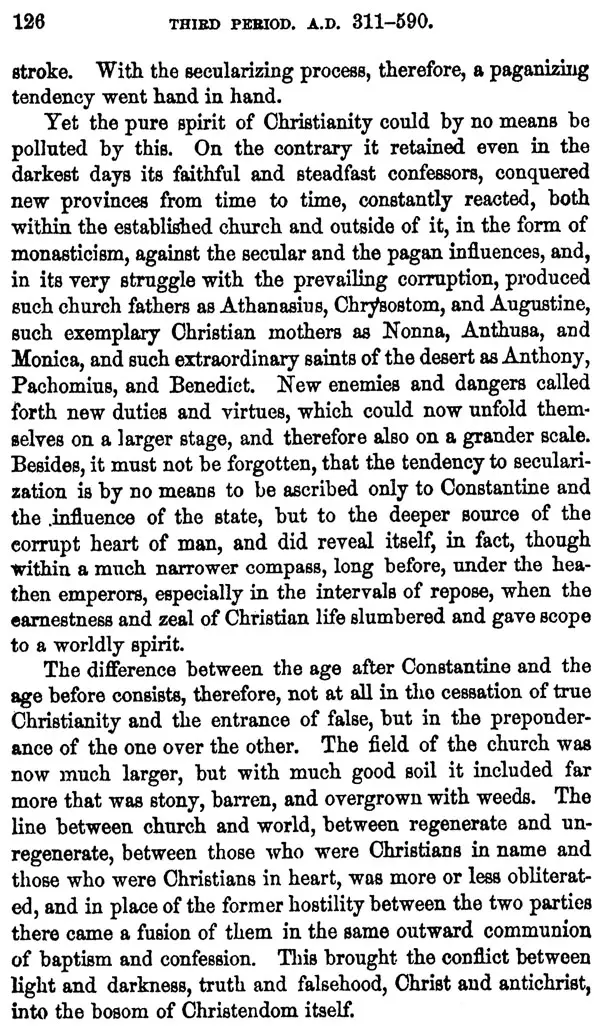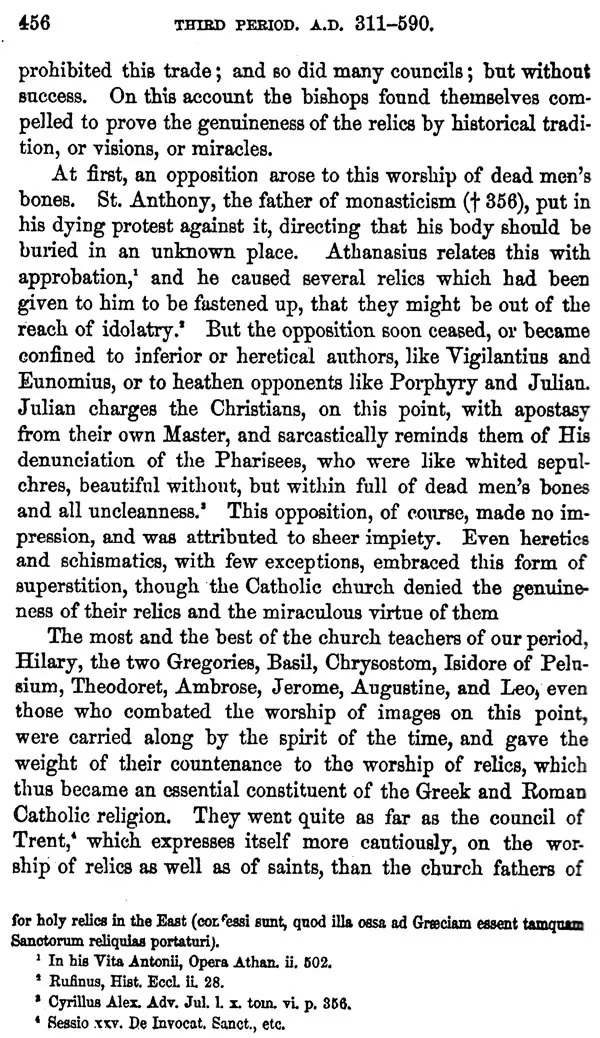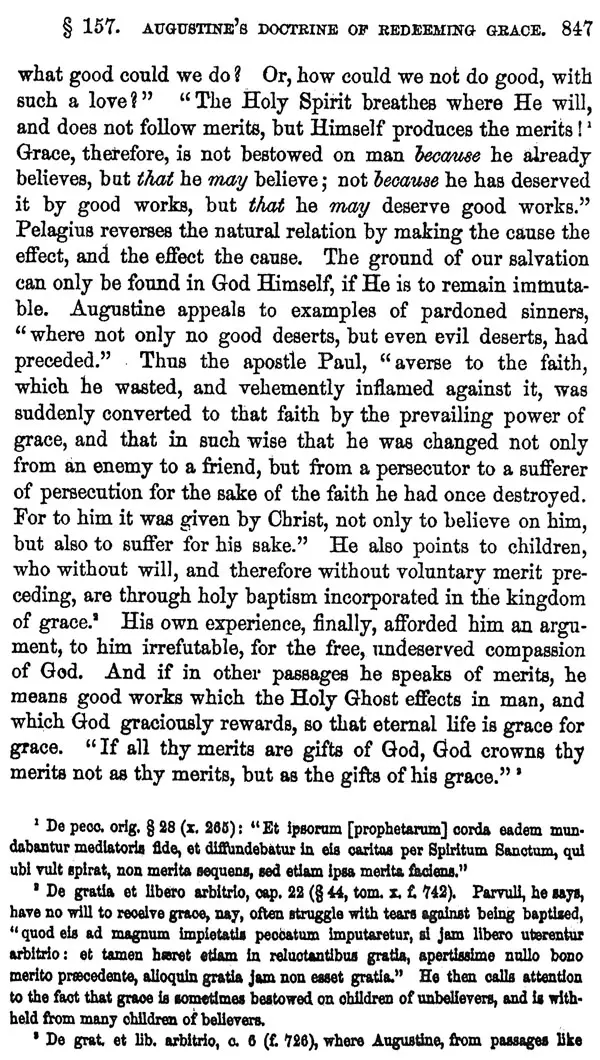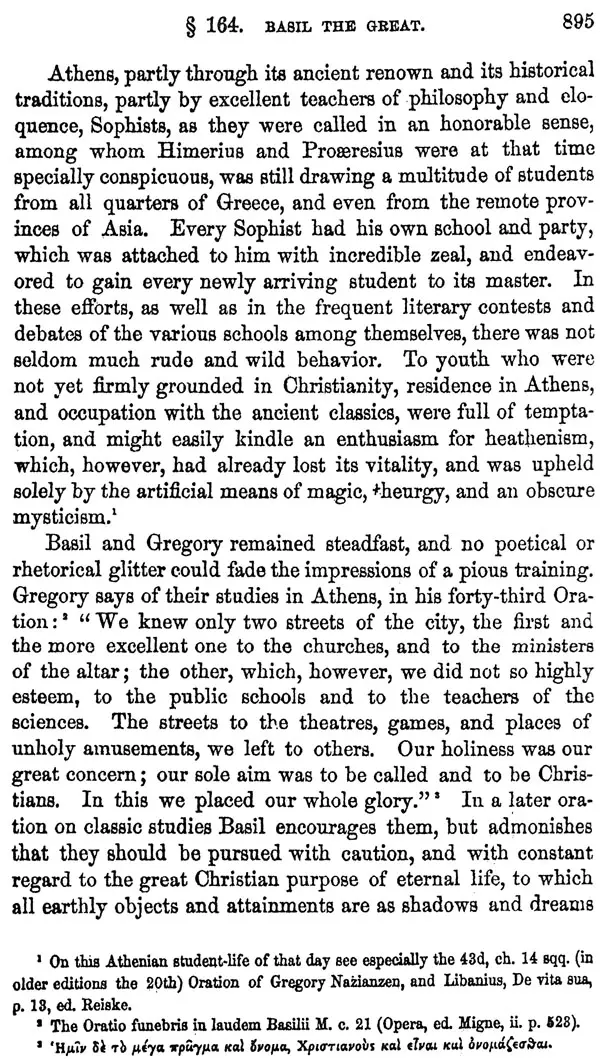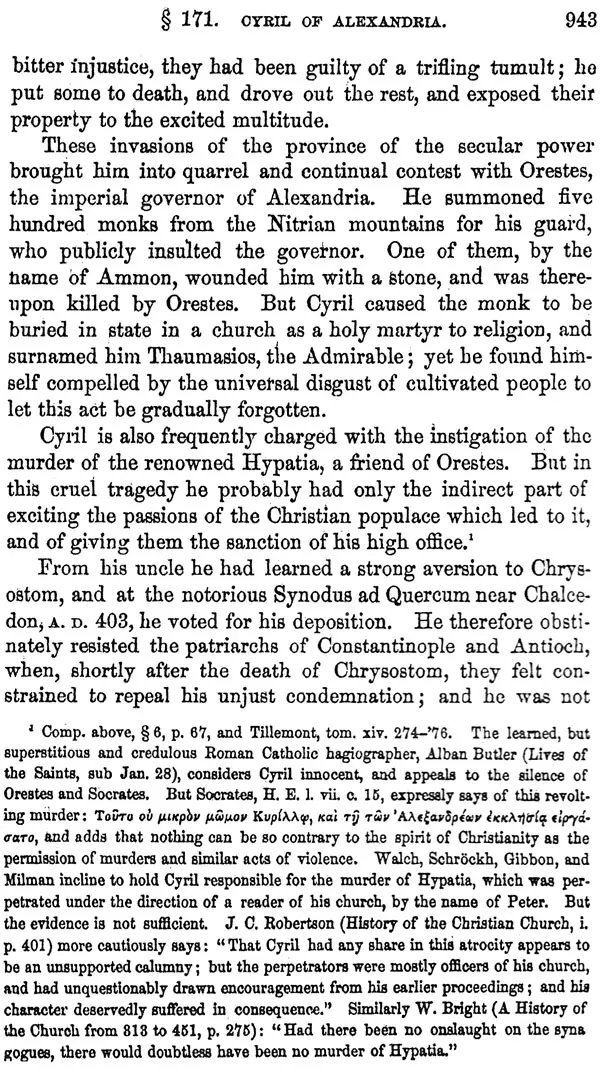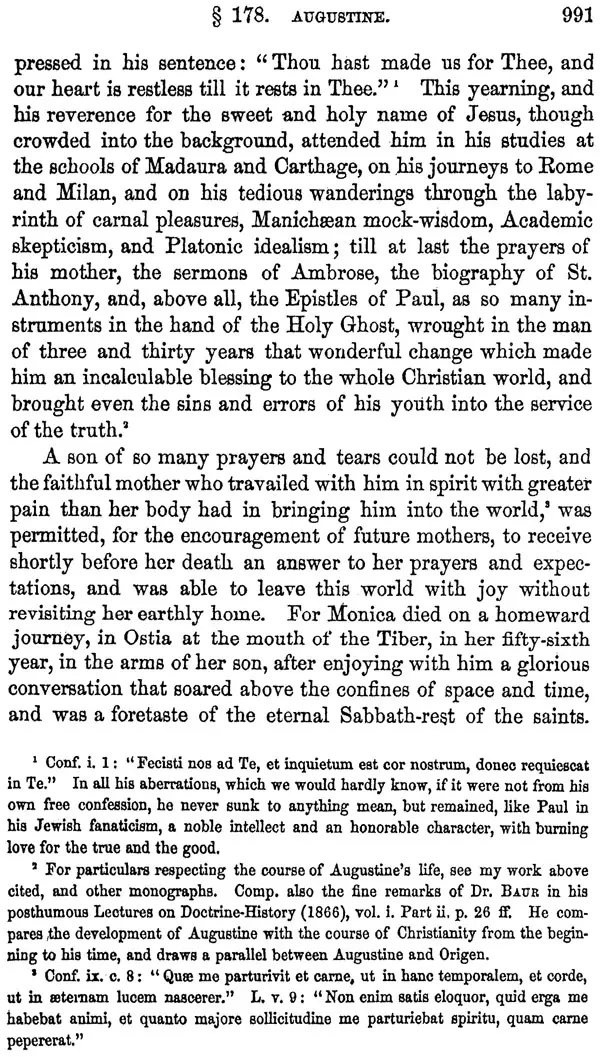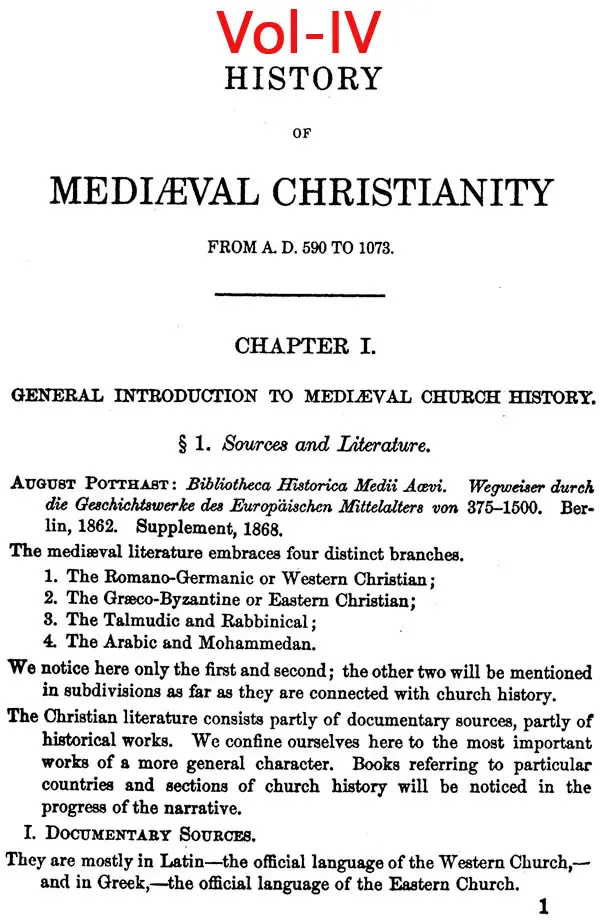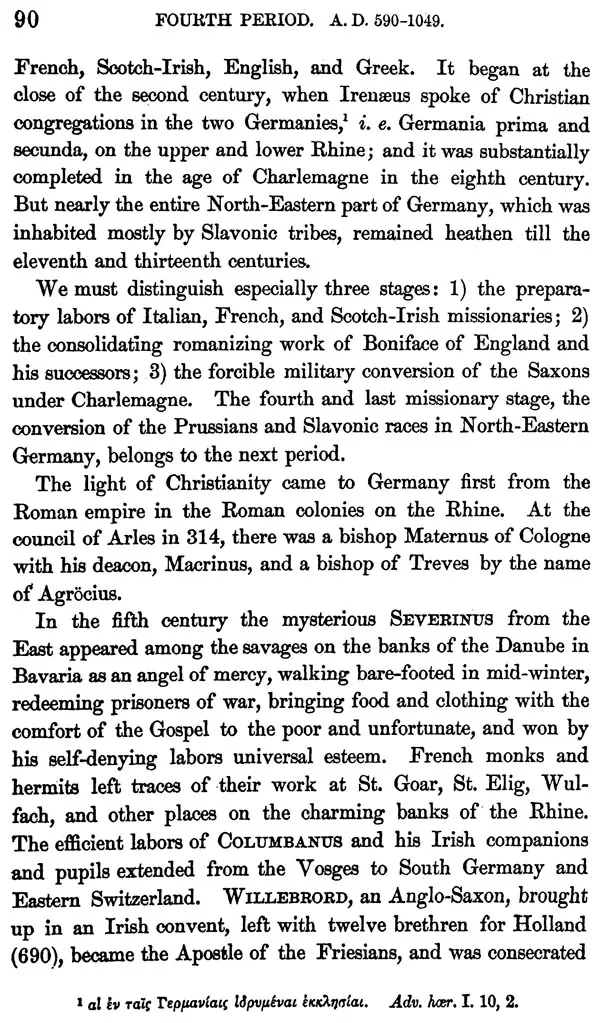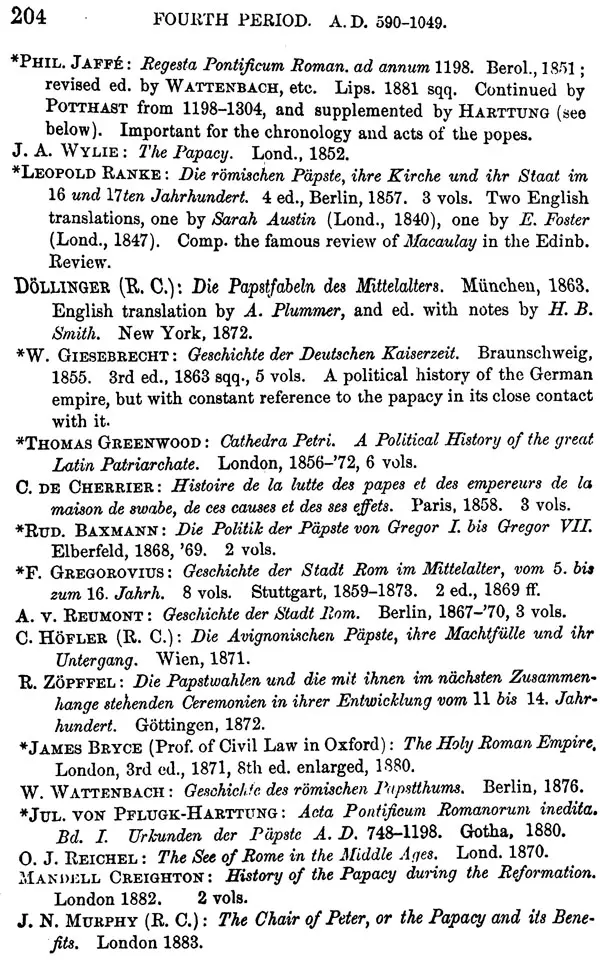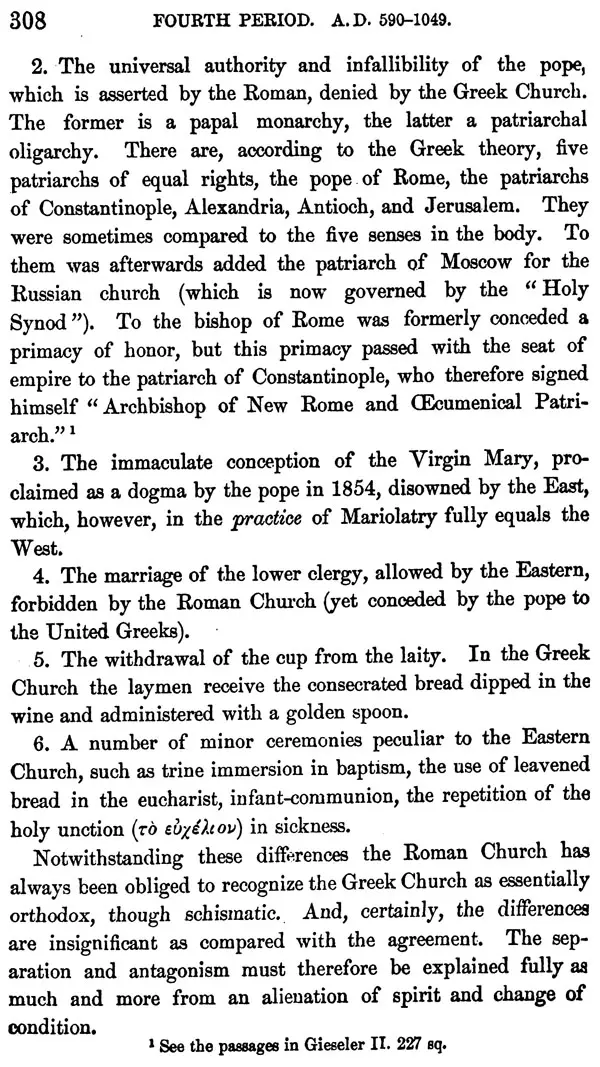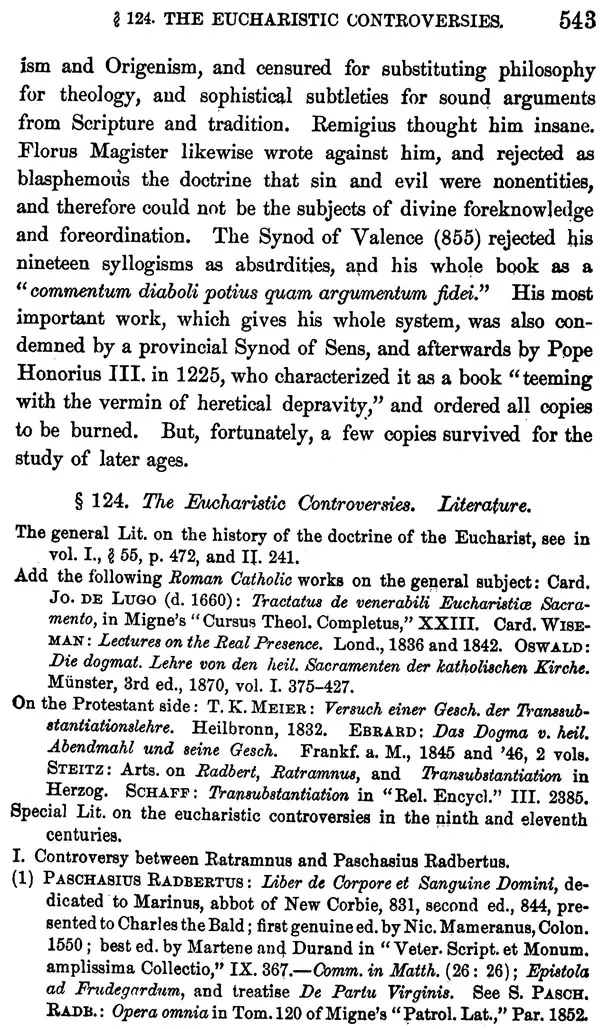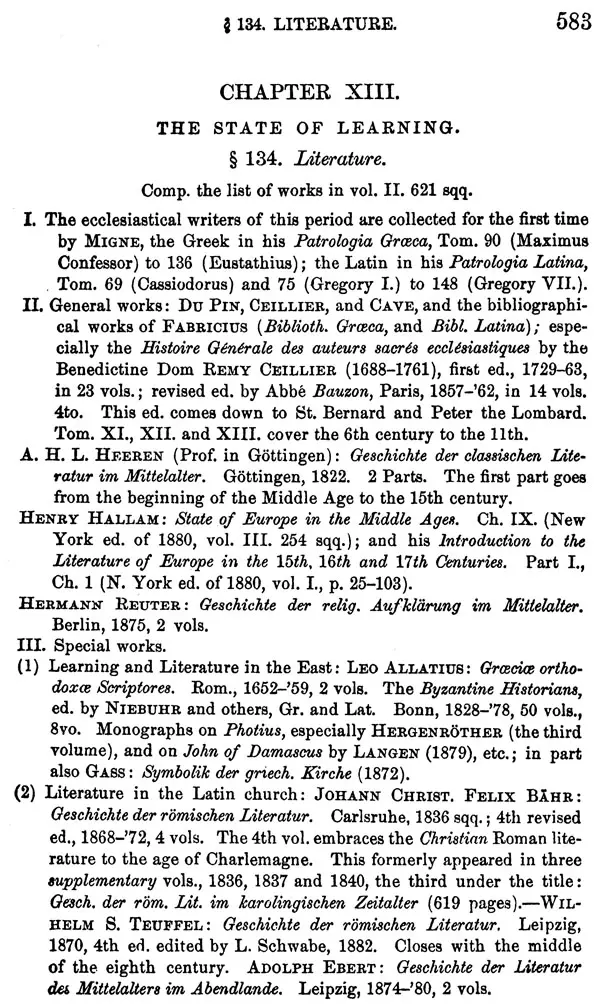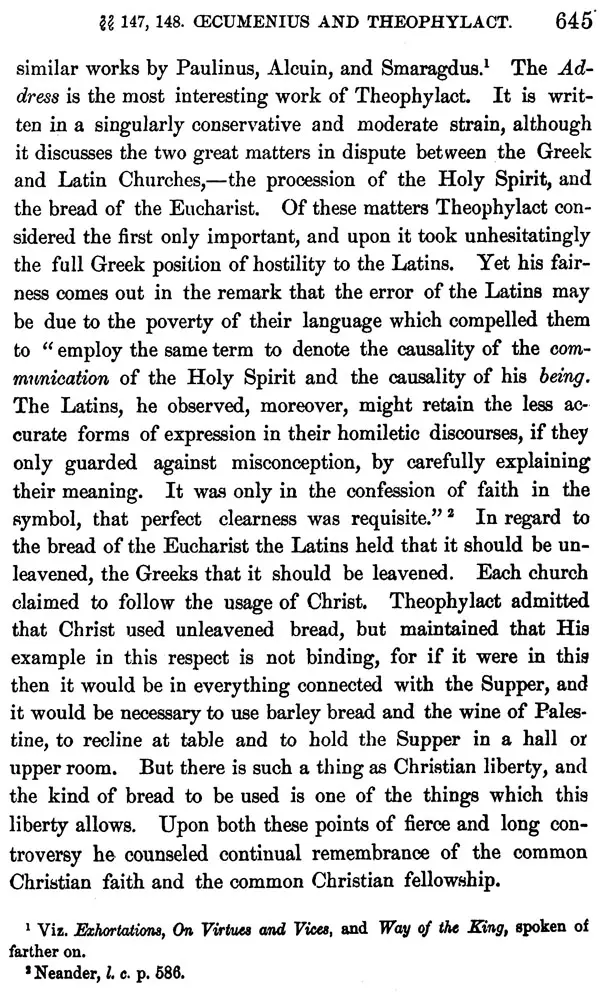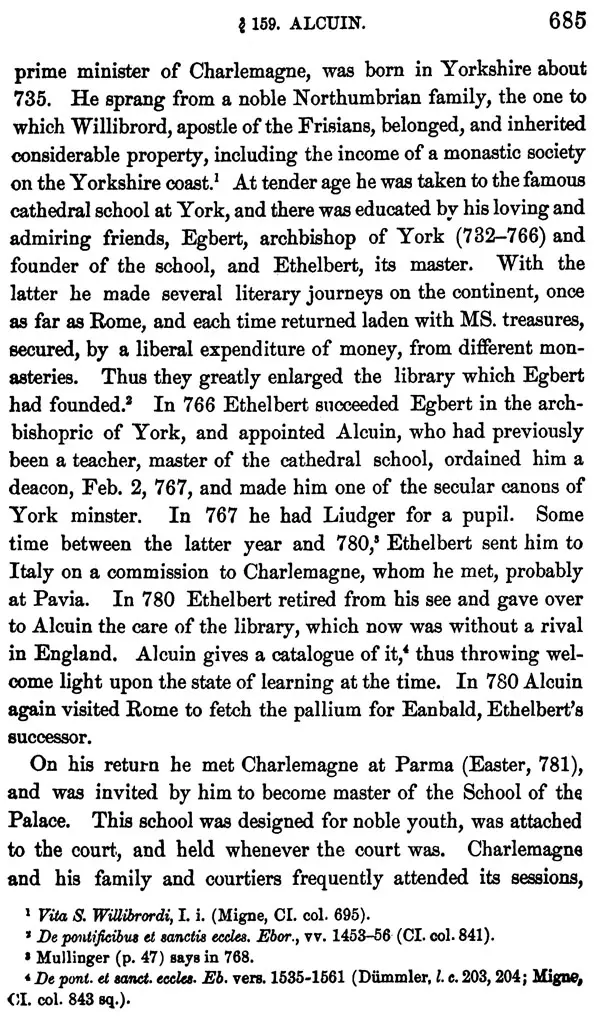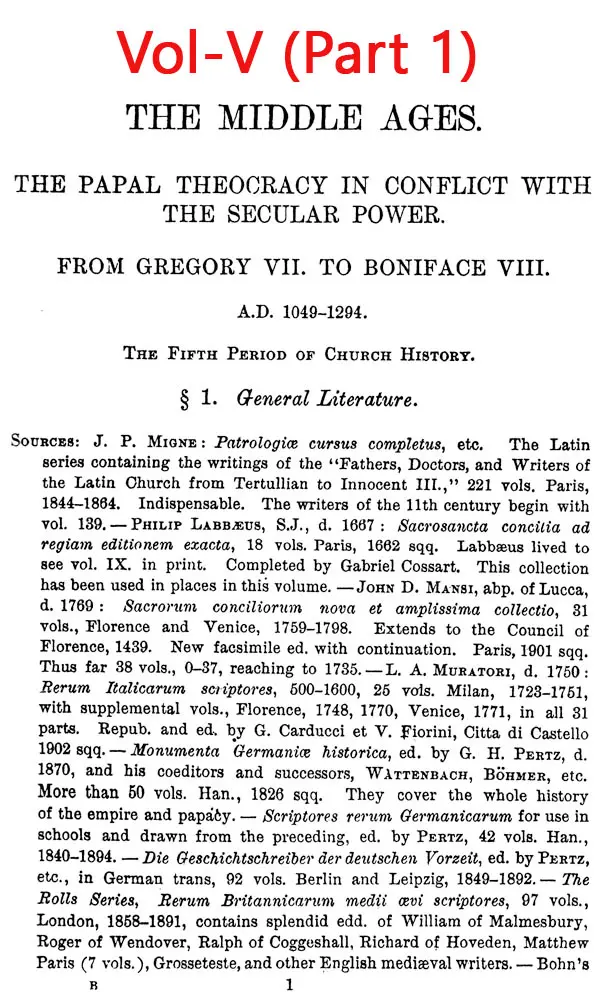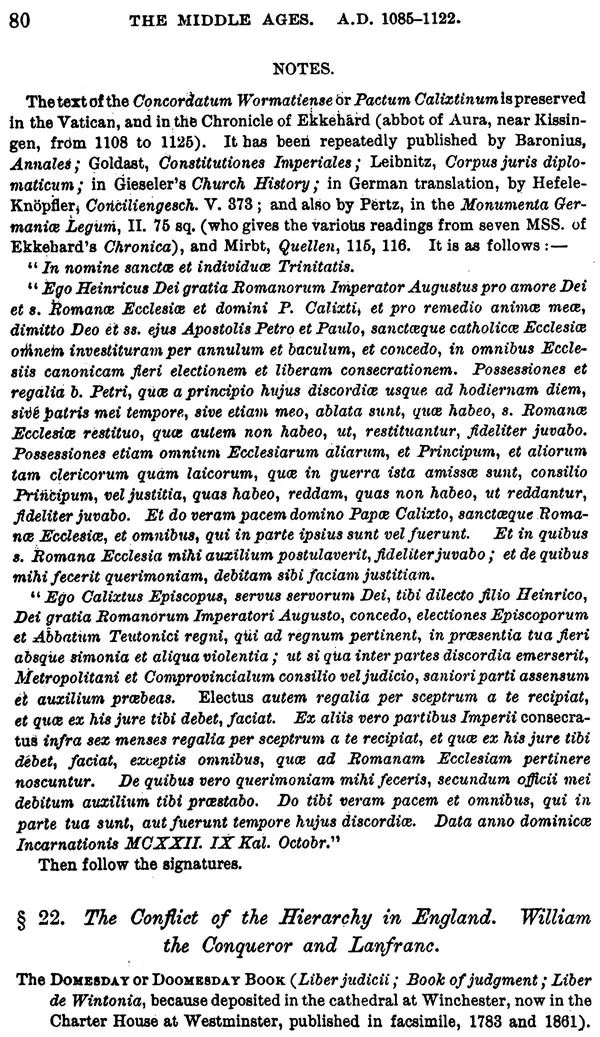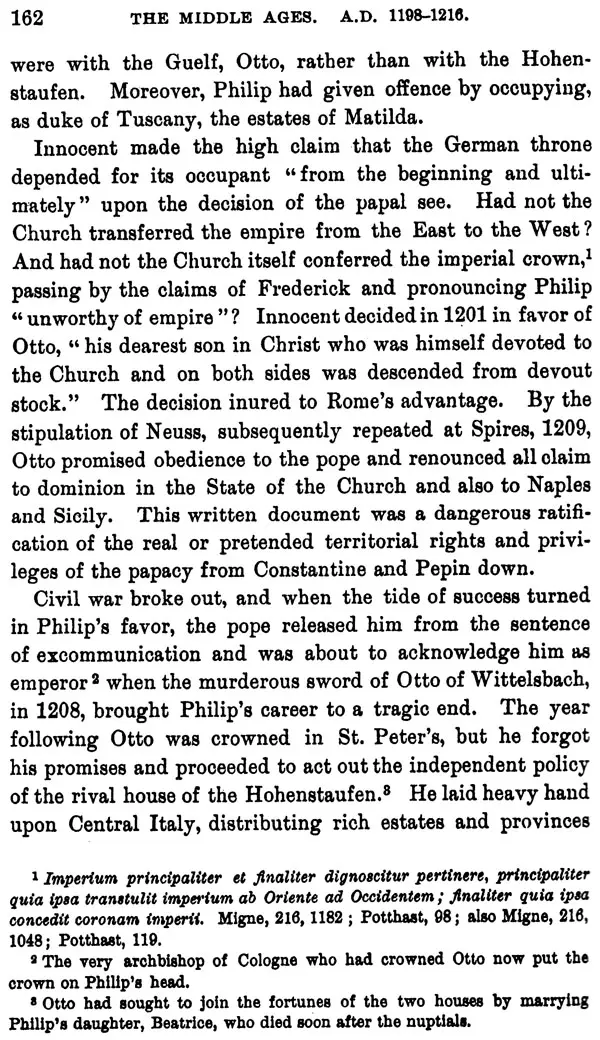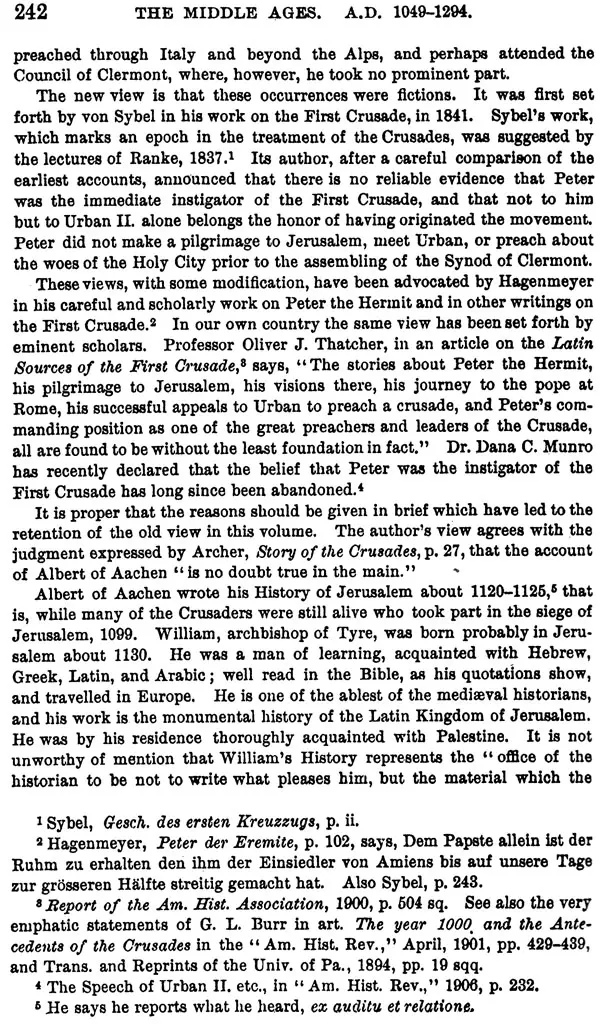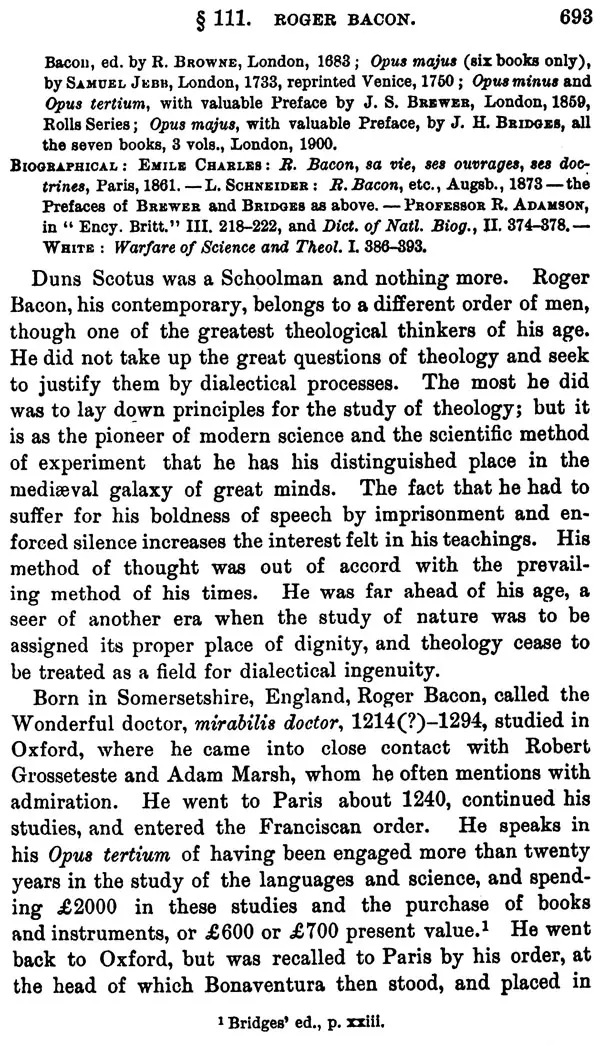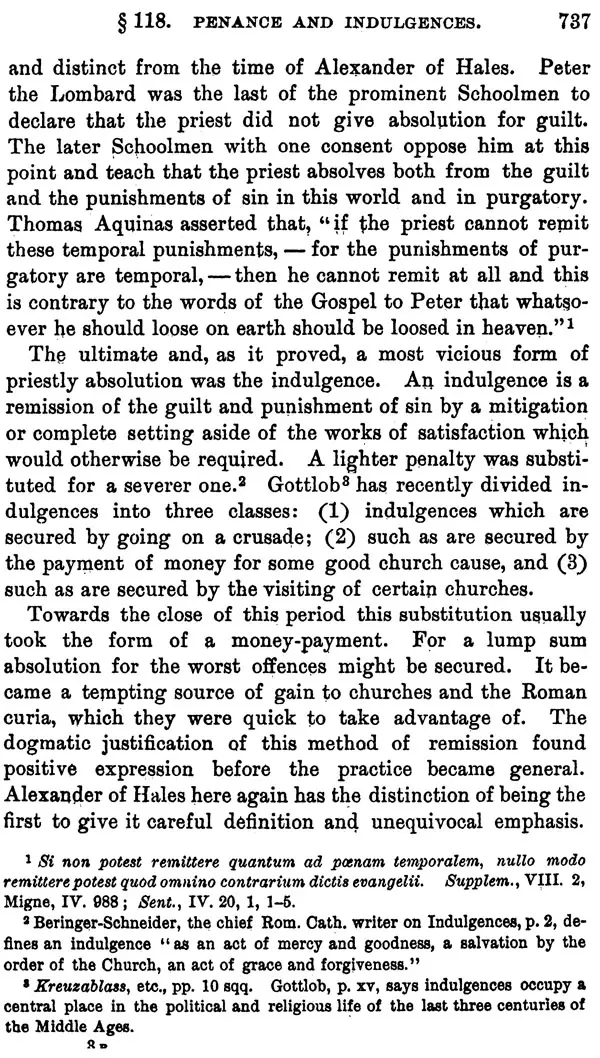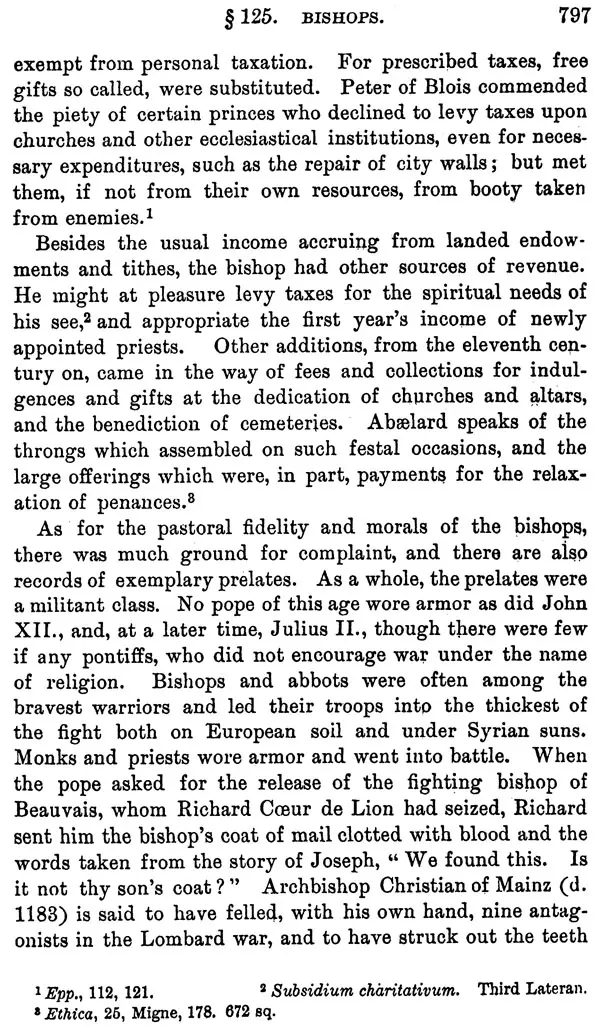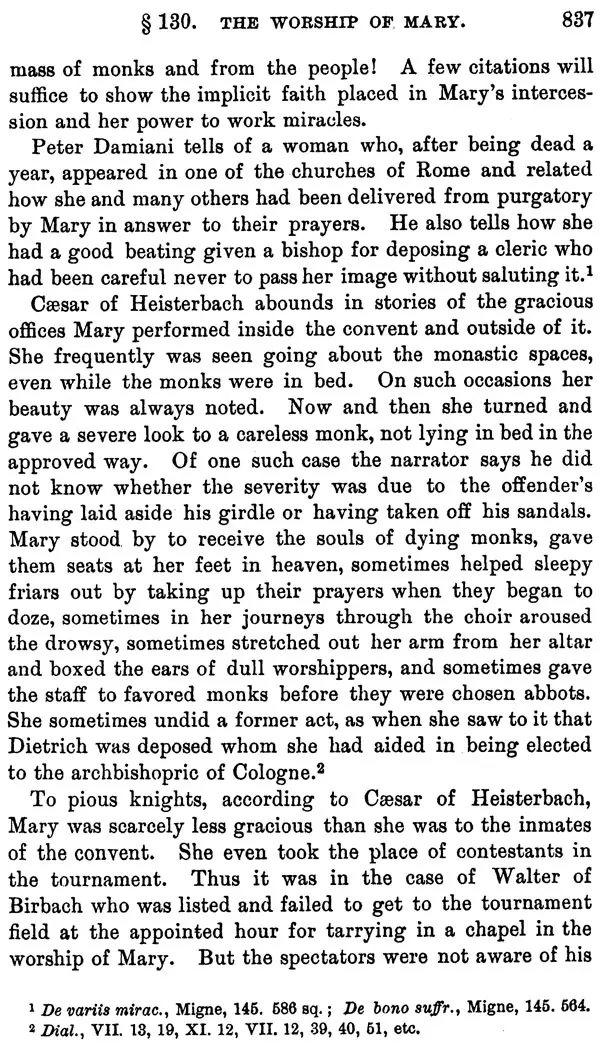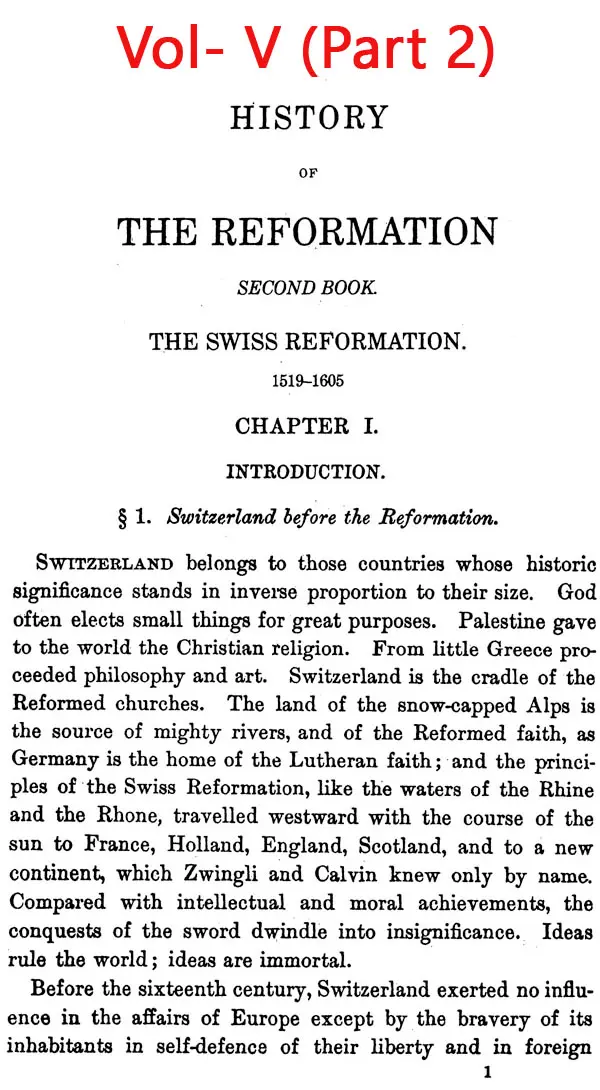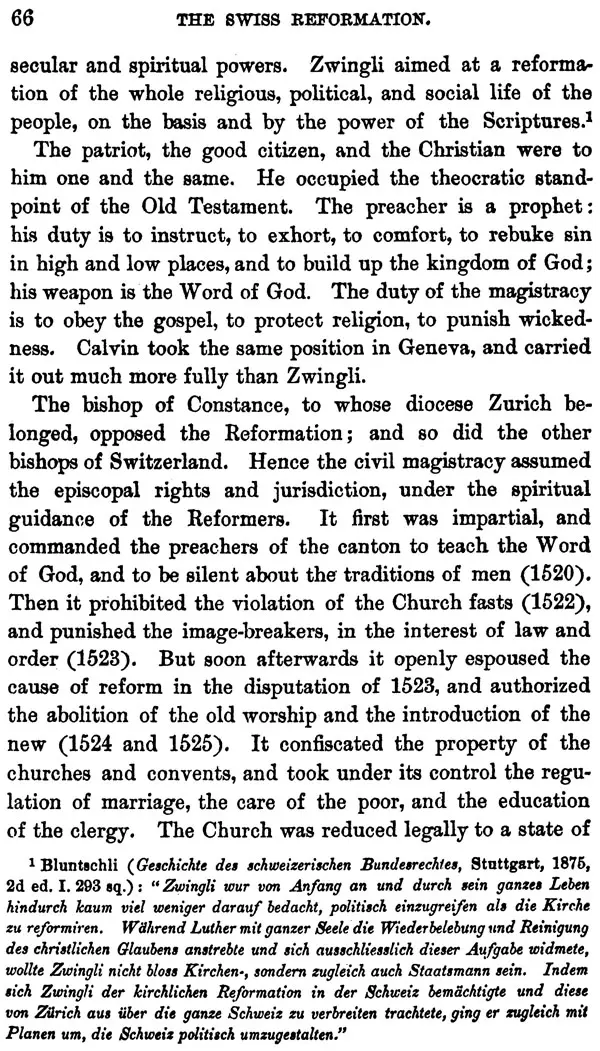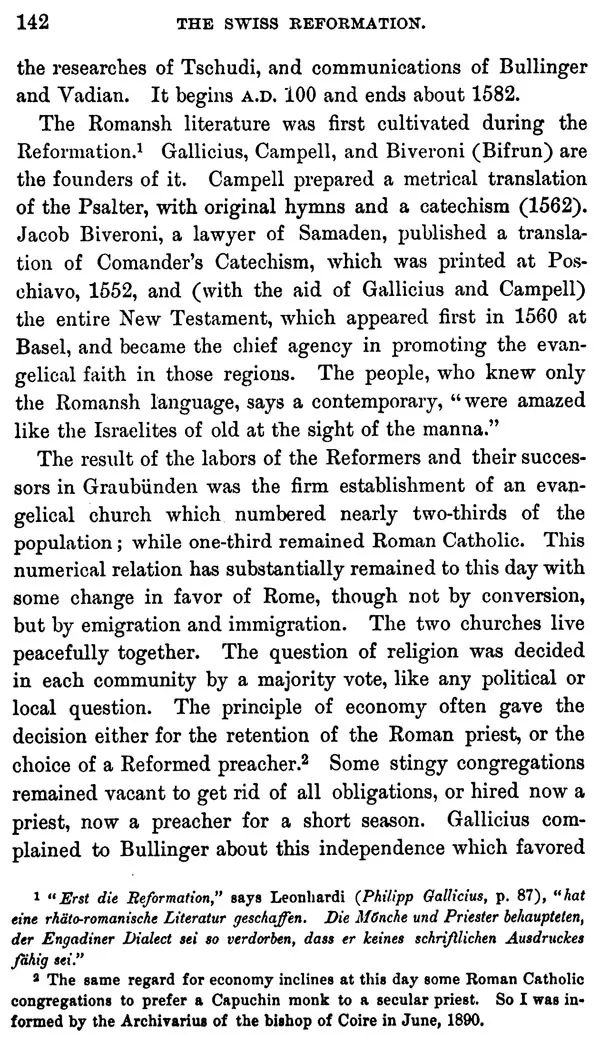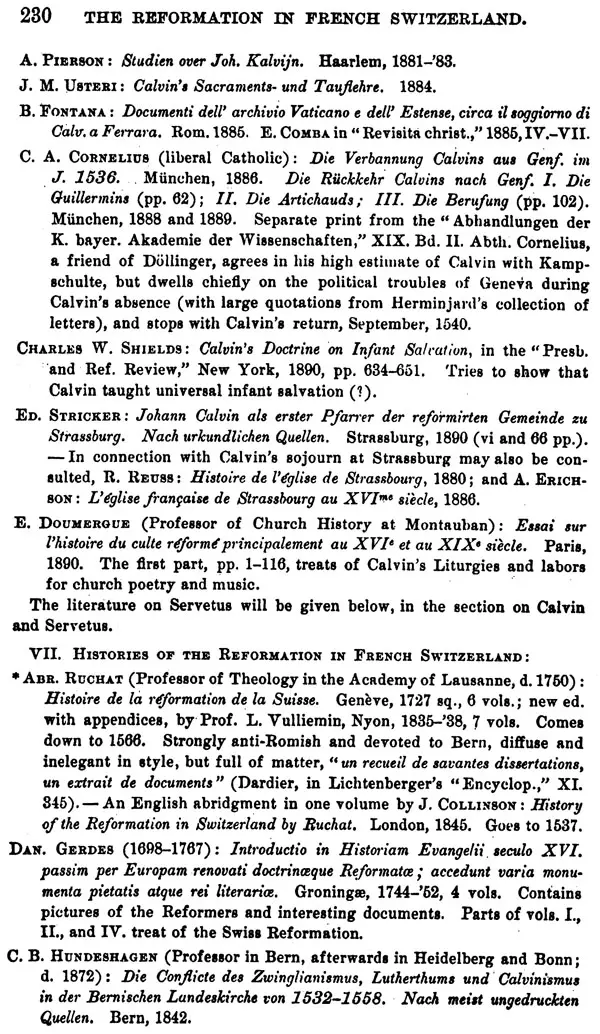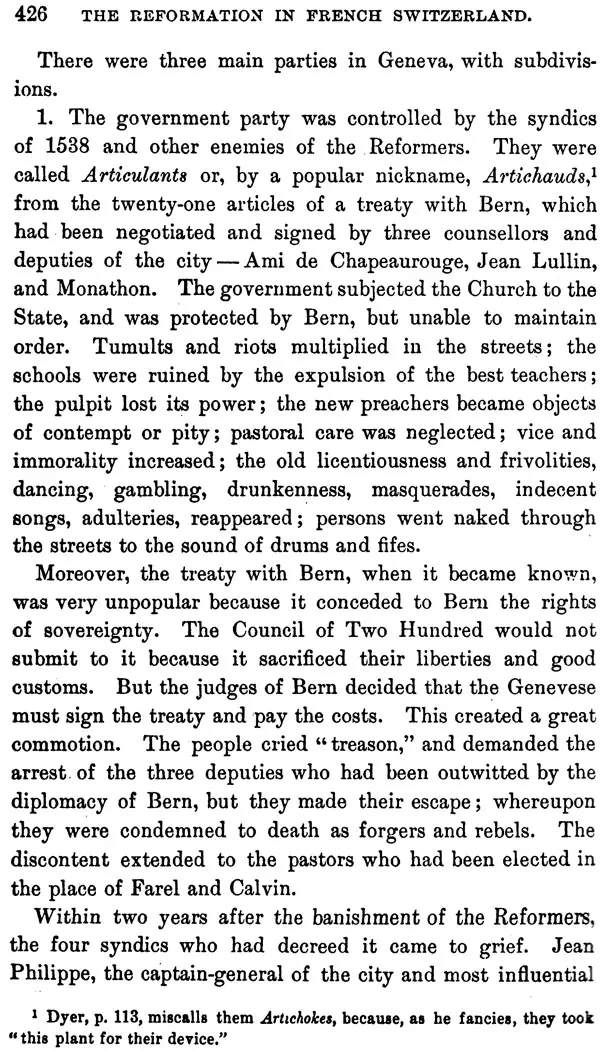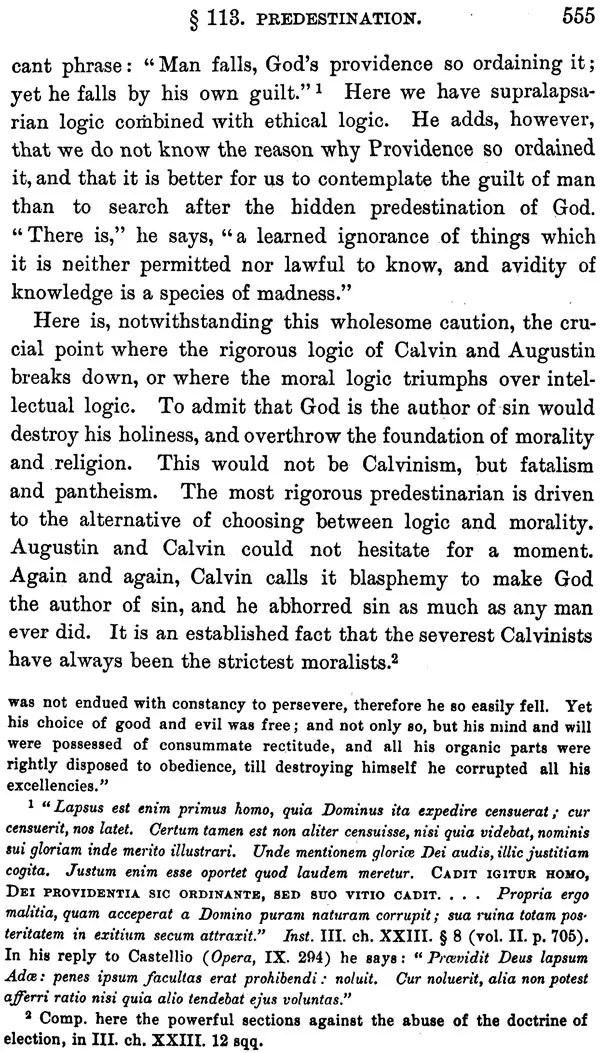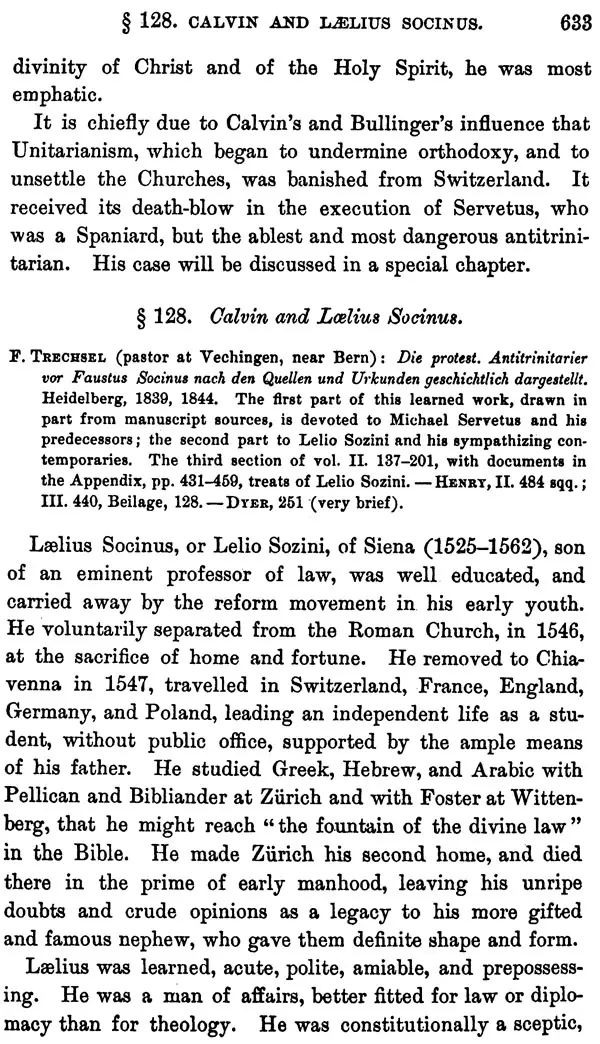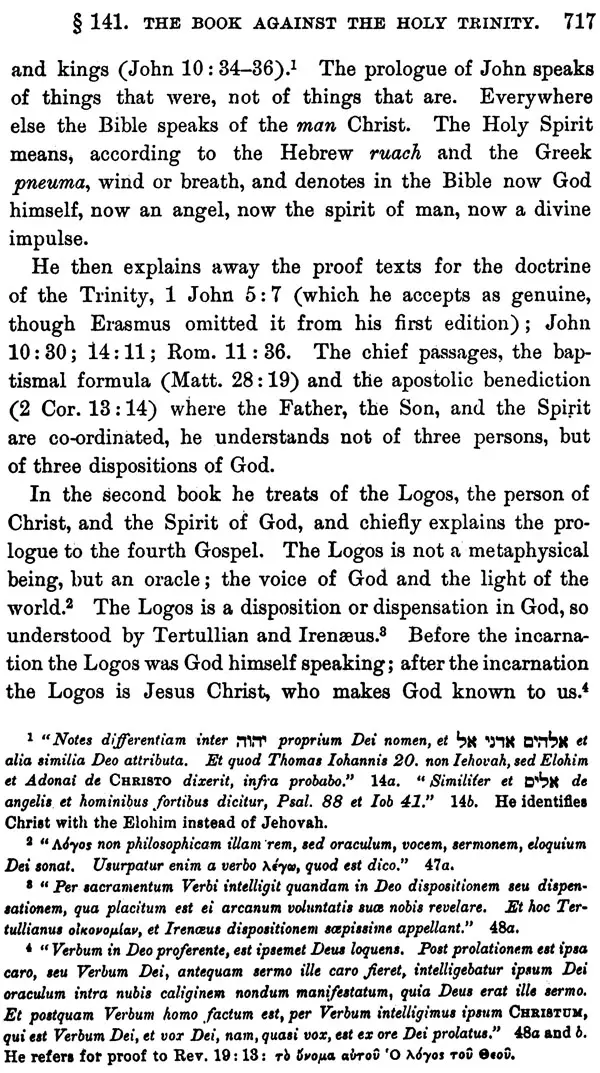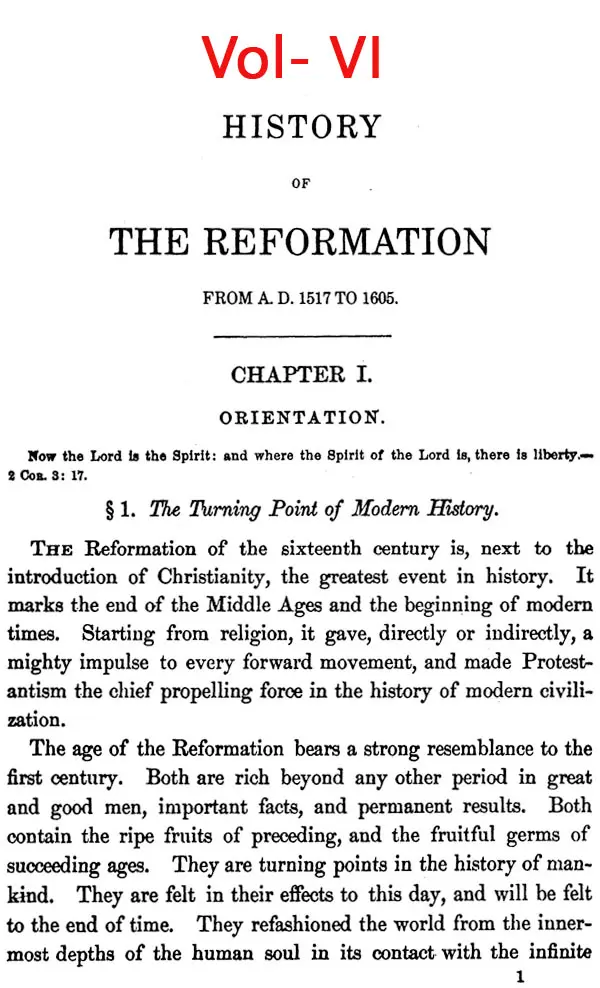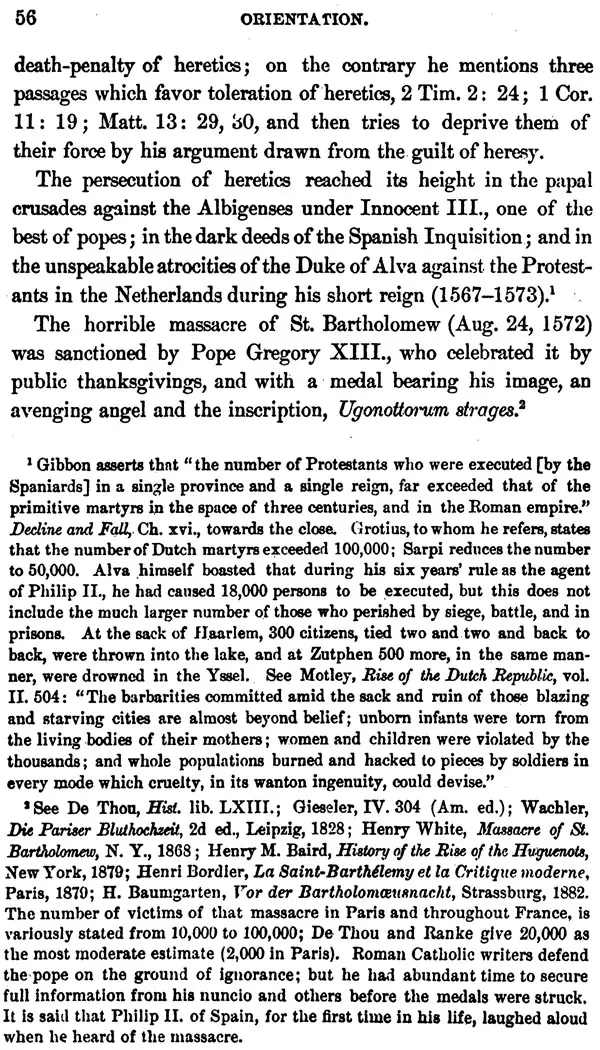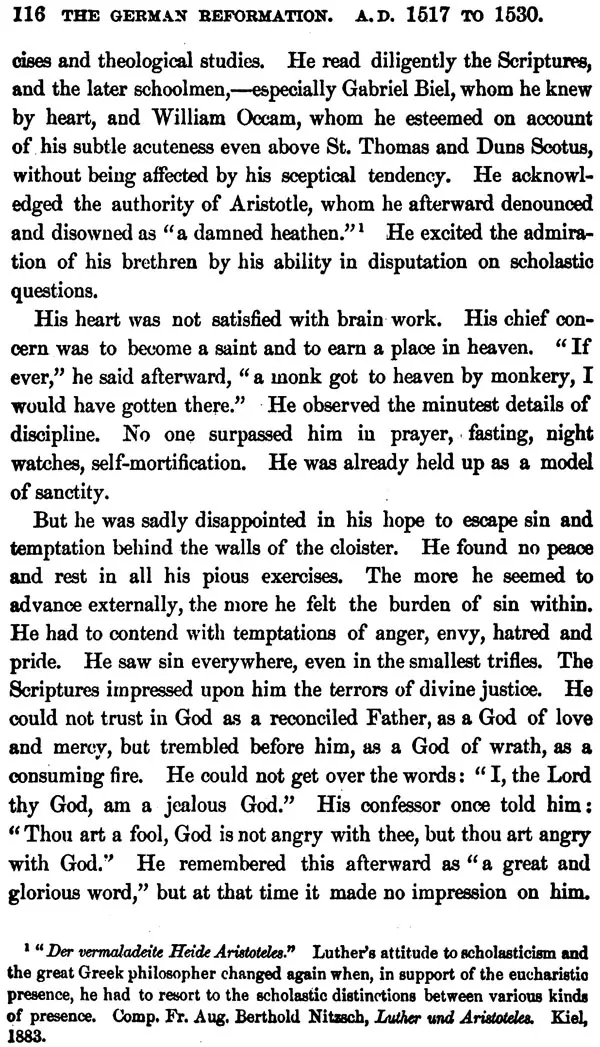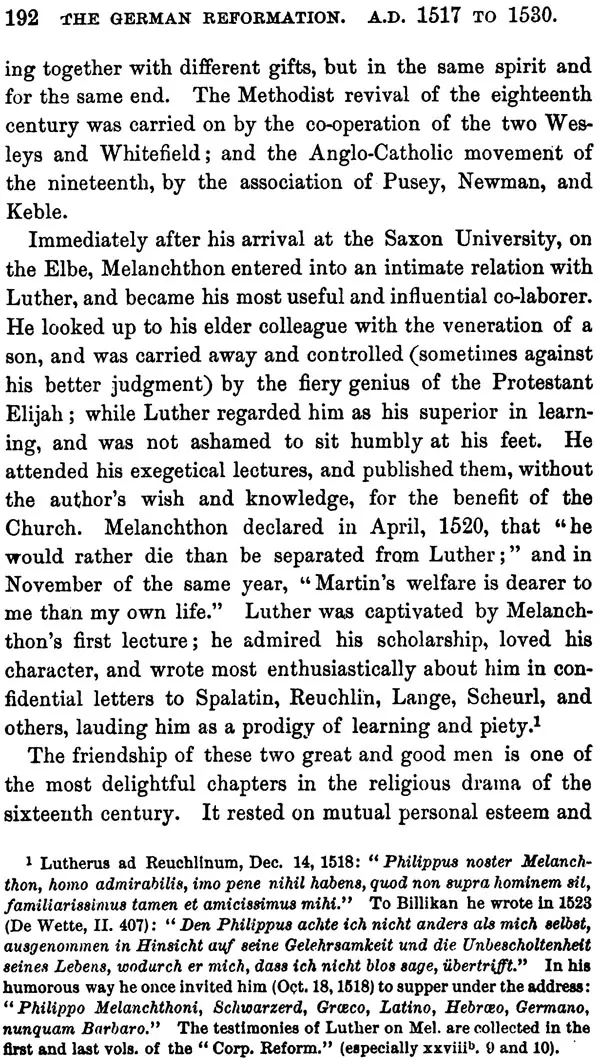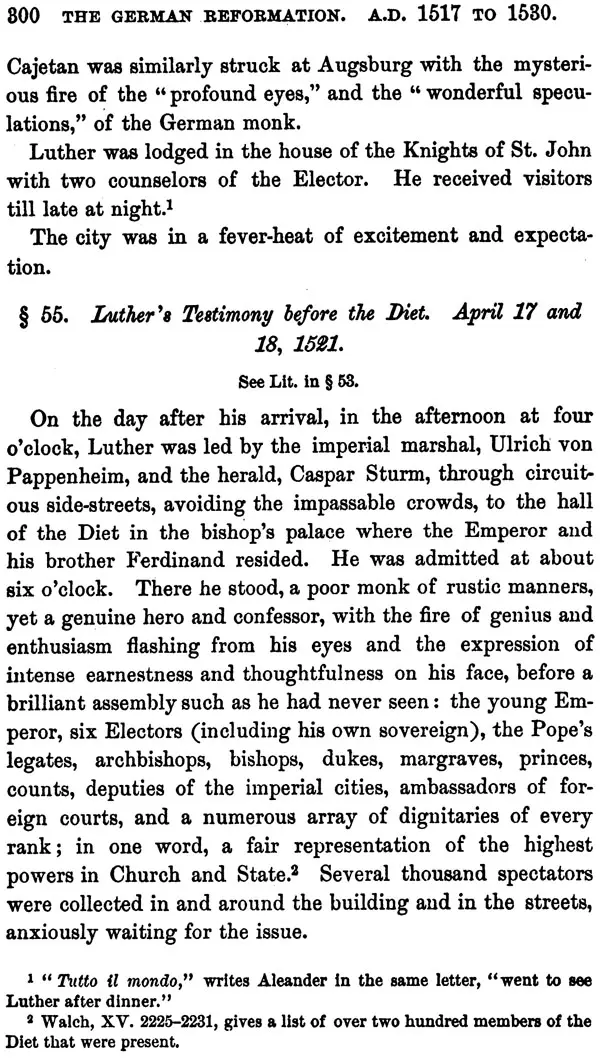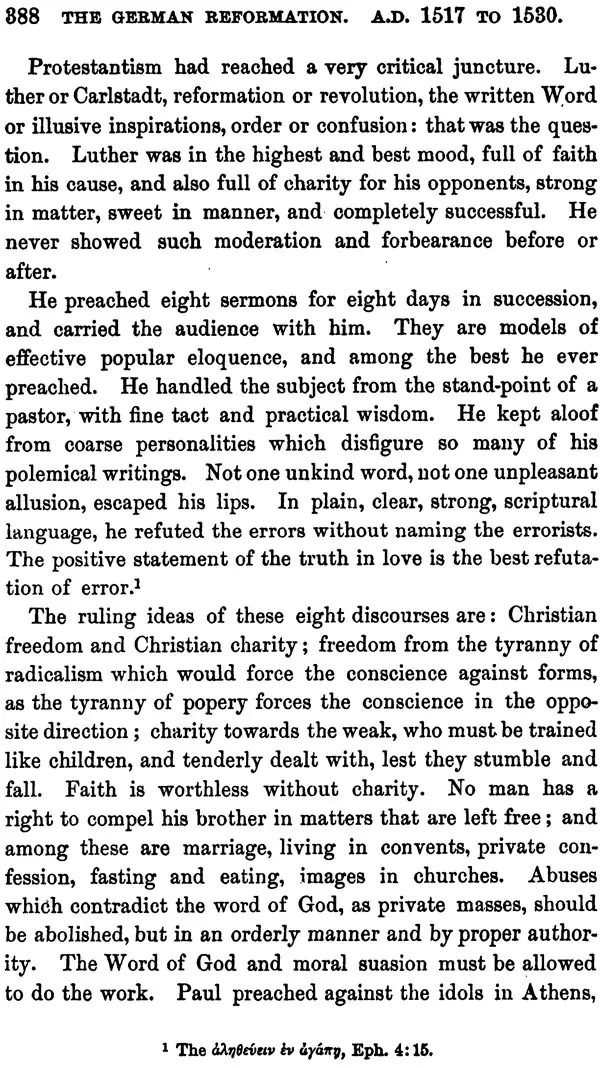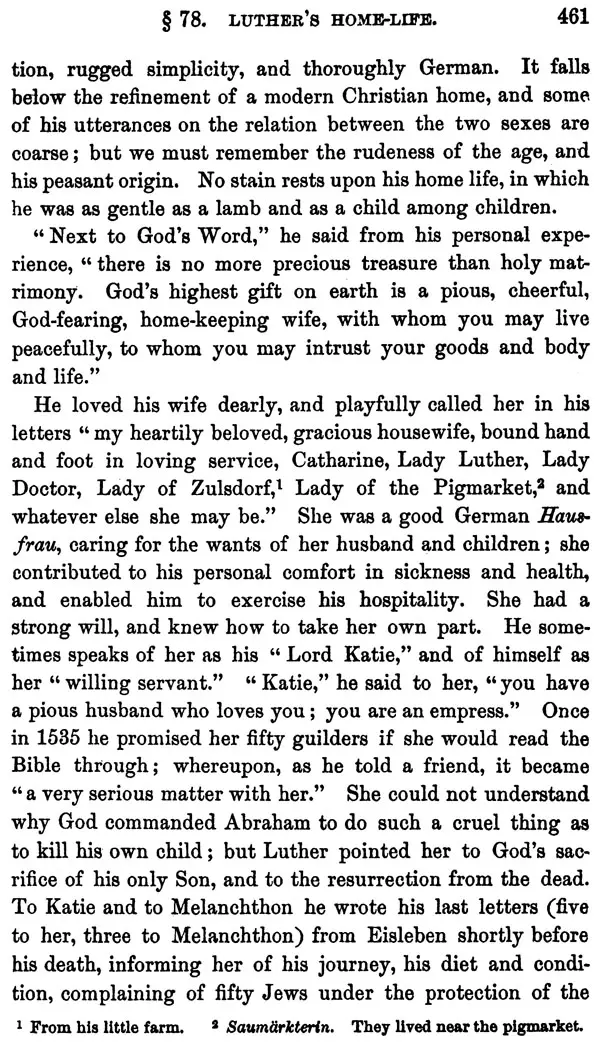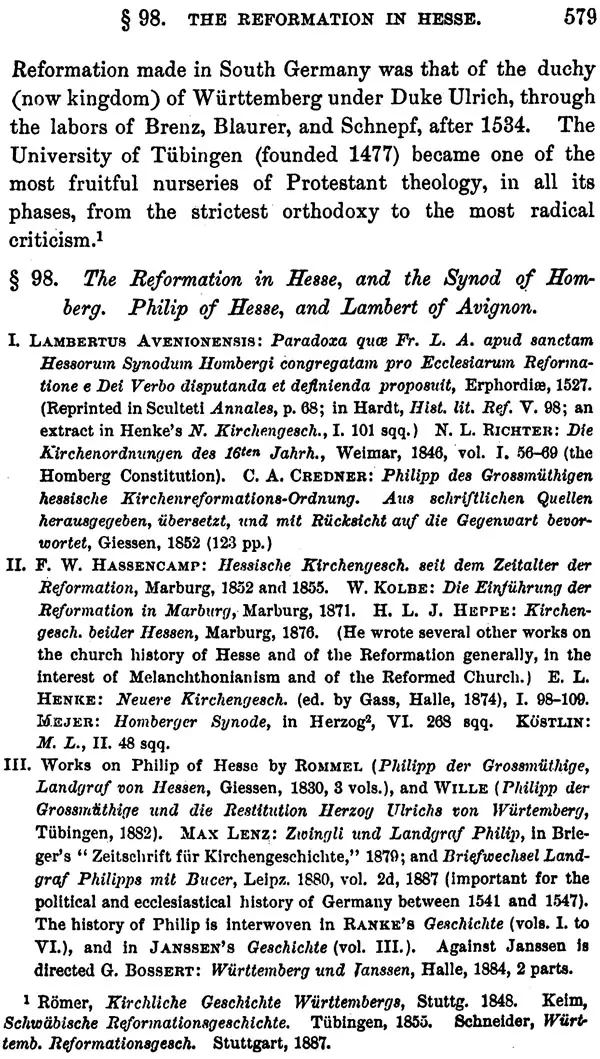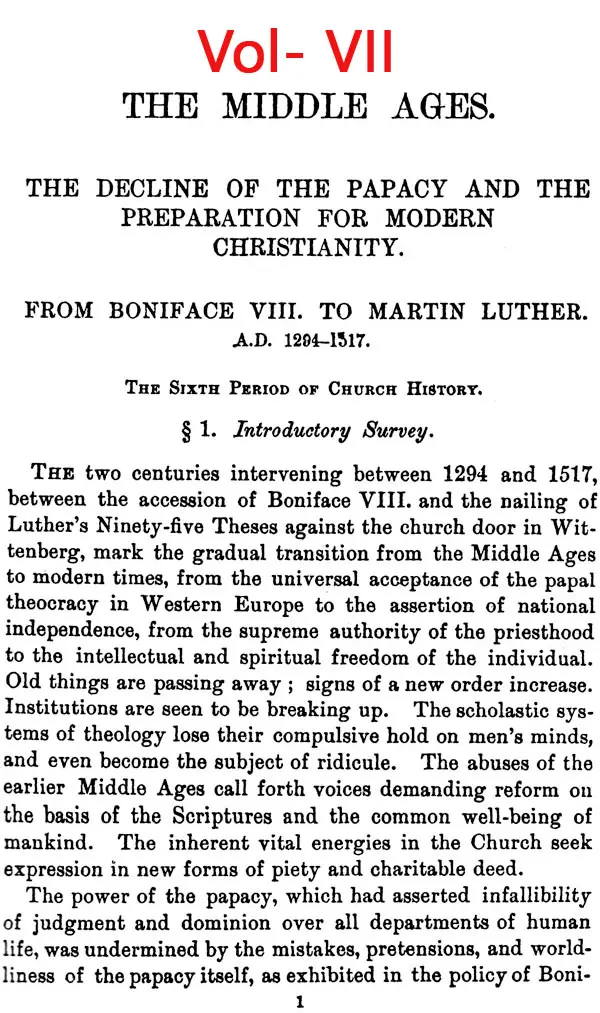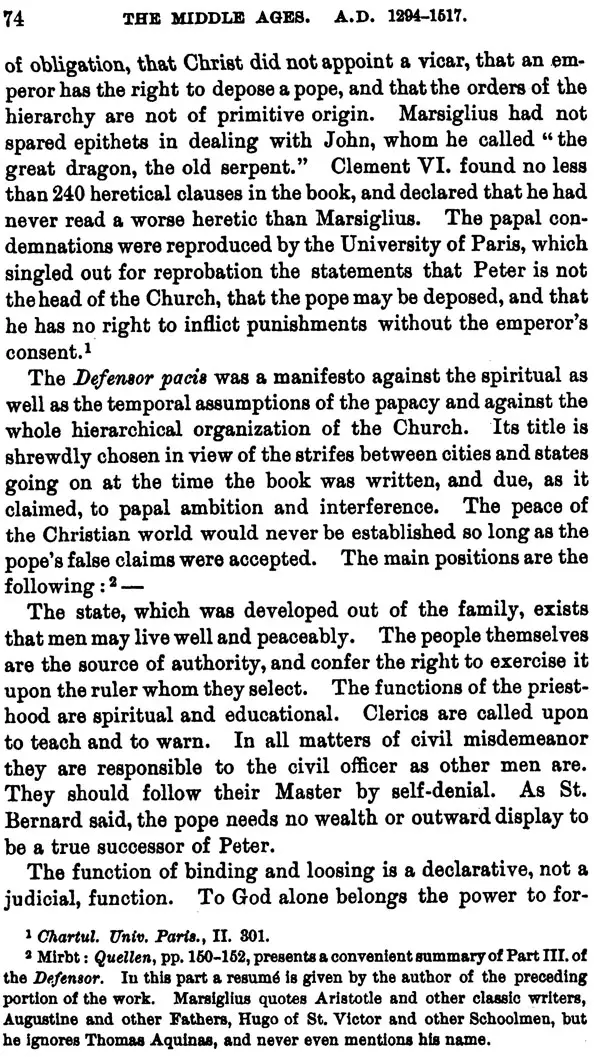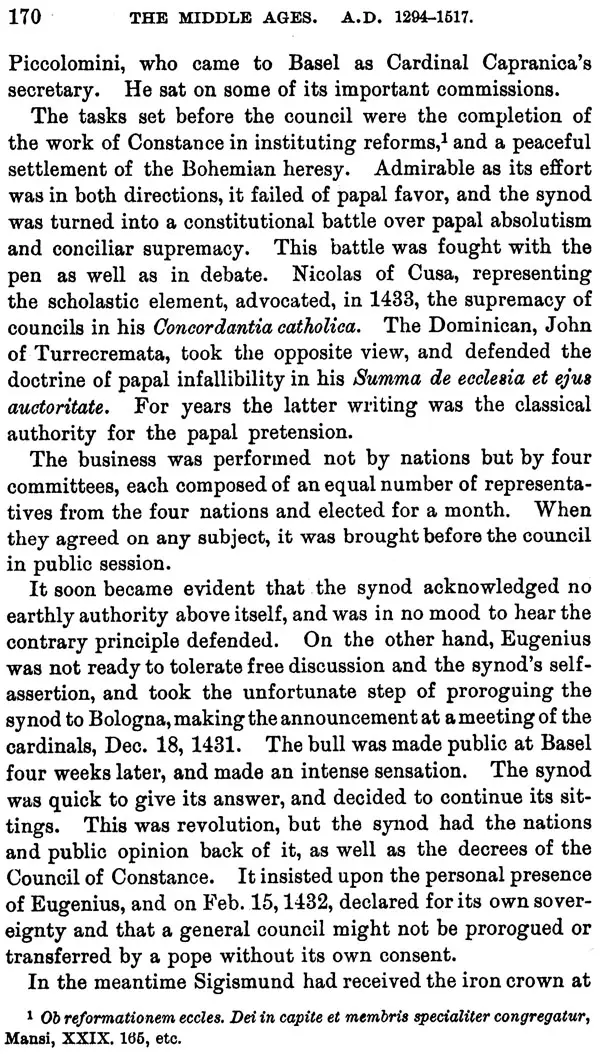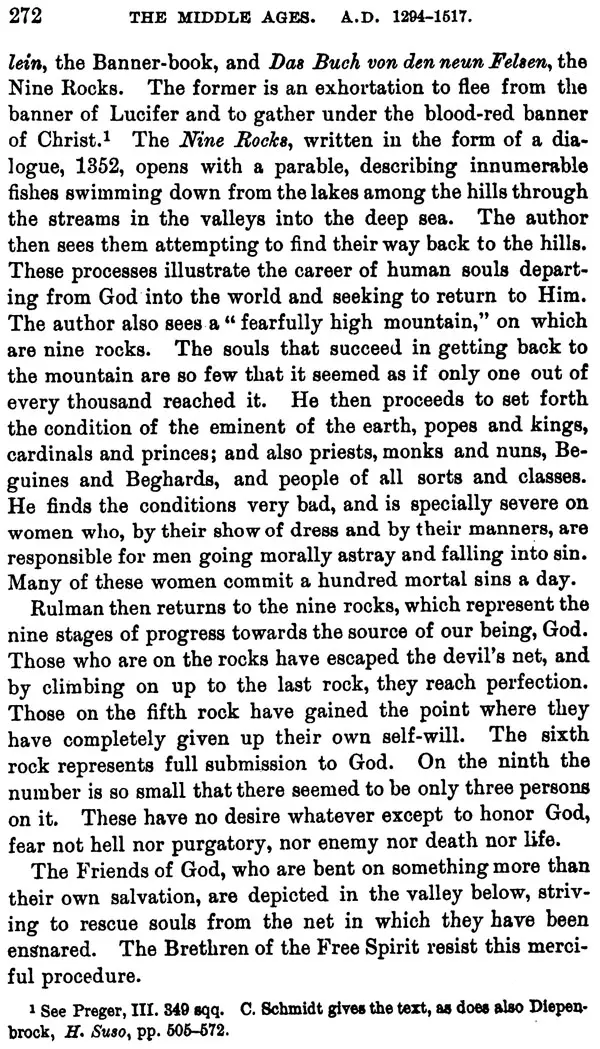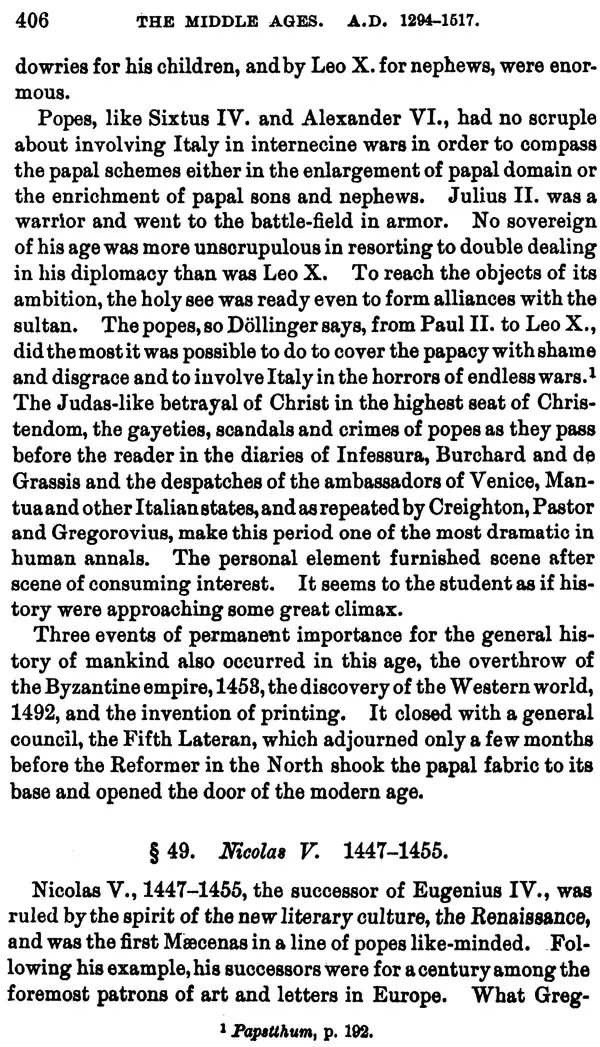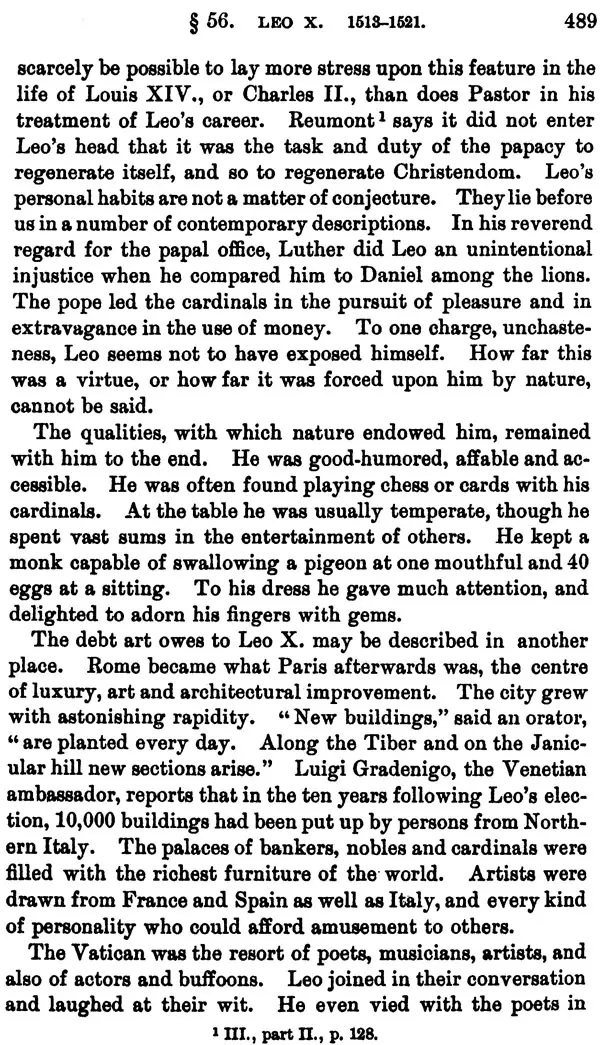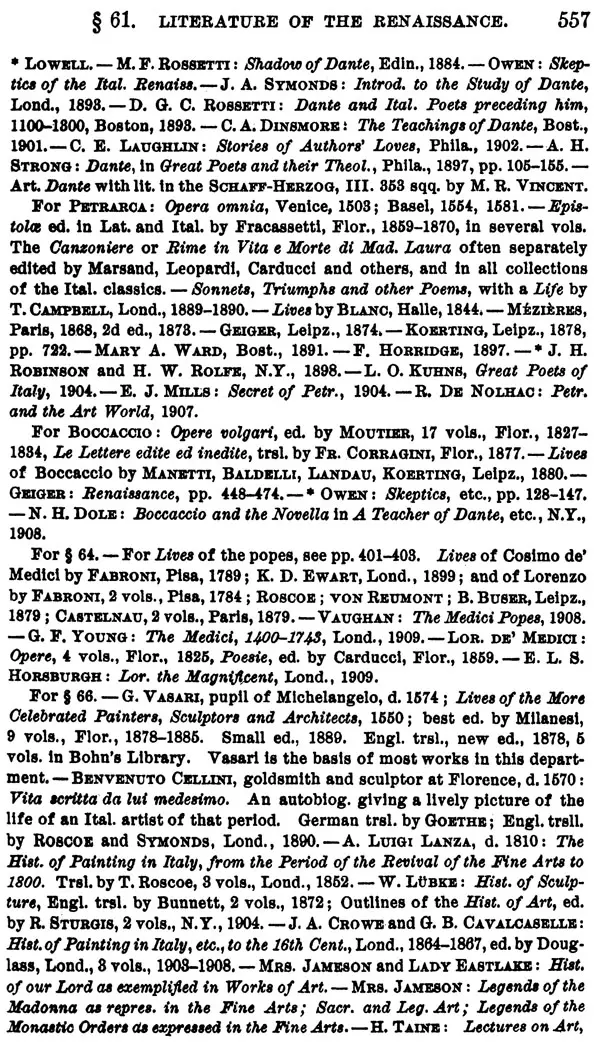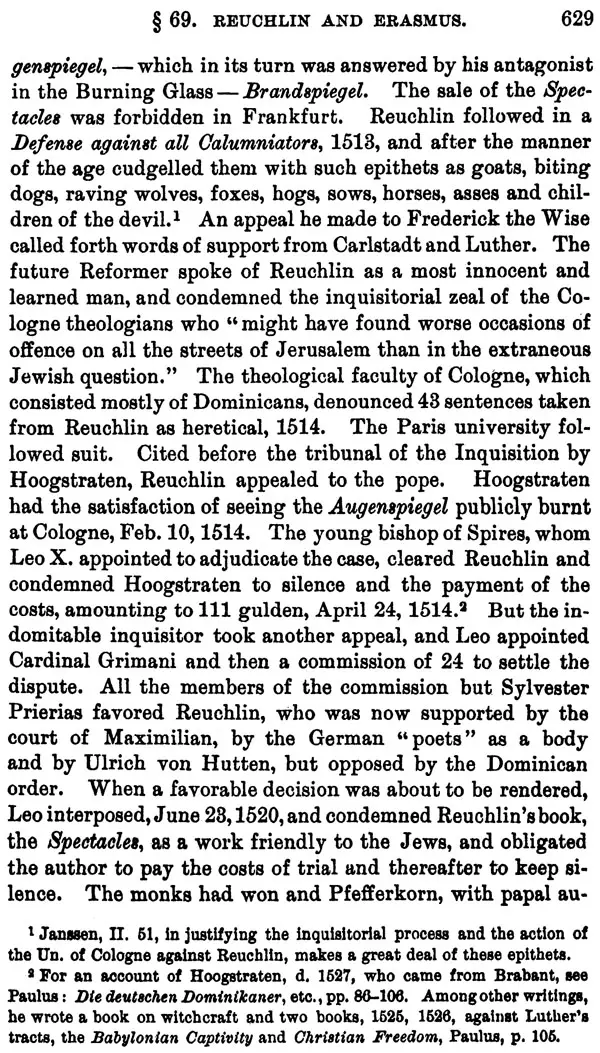
History of the Christian Church (Set of 7 Volumes in 8 Parts)
Book Specification
| Item Code: | UAX918 |
| Author: | Philip Schaff |
| Publisher: | Christian World Imprints, Delhi |
| Language: | English |
| Edition: | 2016 |
| ISBN: | 9789351480853 |
| Pages: | 7056 |
| Cover: | HARDCOVER |
| Other Details | 9.50 X 6.50 inch |
| Weight | 12.29 kg |
Book Description
History of the Christian Church brings out a captivating blend of human history and God's providence. This realistically depicting work digs out those important aspects that are actually missing in modern historical narratives. Moreover, the facts and figures for each period of History are backed by copious footnotes and scriptural references. The pragmatic outlook scrupulously frames out a roadmap to help the Church in knowing, where they were and where they have to move ahead.
The author starts with an examination of the preparation for Christianity in Judaism and the heathen world. The expedition moves on to enshrine intermediate phases of this historical compendium, i.e., Nicene Christianity, Mediaeval Christianity, and Middle Ages. In its concluding section, it sets forth a general introduction to modern church history and a thorough analysis of the era of the Reformation, thereby encapsulating Protestant and Calvinistic movements started by Martin Luther, Huldreich Zwingli and John Calvin; in Germany and Switzerland to the close of the 16th century. Also, it beautifully presents the life & resurrection of Jesus Christ, and biographical sketches of various historical personalities.
This intelligible woven Church History covers each and every aspect of the subject in 7 vols. (8 physical volumes). Inter-alia Vol. 1 covers Apostolic Christianity, A.D. 1-100; Vol. 2 focuses on Ante-Nicene Christianity, A.D. 100-325; Vol. 3 is all about Nicene and Post-Nicene Christianity (The Church in Union with the Roman Empire) from Constantine the Great to Gregory the Great. A.D. 311-590; Vol. 4 highlights Mediaeval Christianity (The Church Among the Barbarians) from Gregory I to Gregory VII, A.D. 590-1073; Vol. 5 (Part 1) brings into limelight Middle Ages from Gregory VII to Boniface VIII, A.D. 1049-1294; Vol. 5 (Part II) talks about Middle Ages from Boniface VIII to Martin Luther, A.D. 1294-1517; Vol. 6 breaks the dawn of the Reformation by detailing on Modern Christianity, The German Reformation till the Diet of Augsburg, A.D. 1517-1530; and Vol. 7 continues to enshrine period of Modern Christianity by showcasing The Swiss Reformation, A.D. 1519-1605.
This laborious research work is equipped with Footnotes, Charts, Illustrations, Maps, Tables, Appendices, Indexes, and Addendas wherever required. The book will certainly lure the interest of Historians, Theologians, Missionaries, Philosophers, Church Ministers, Christian Laity, Church Clergies, Church Libraries, Christian Colleges, Seminaries & Institutions, Researchers and Students, alike.
Philip Schaff (1819-1893) was a Swiss-born, German educated Protestant Theologian and a Church Historian. At Berlin, in 1841, he took the degree of Bachelor of Divinity and passed examinations for a Professorship. In 1842, he was Privatdozent (P.D.) in the University of Berlin, and in 1843 he was called to become Professor of Church History and Biblical Literature in the German Reformed Theological Seminary of Mercersburg, Pennsylvania.
His speech on The Principle of Protestantism, delivered in German at Reading, Pennsylvania, got published in German with an English version; became a pioneer work in English in the field of symbolic. Dr. Schaff became Secretary of the Sabbath Committee in New York City, and held the position from 1863 to 1870. He became a Professor at Union Theological Seminary, New York City in 1870 holding first the chair of theological encyclopedia and Christian symbolism till 1873, of Hebrew and the cognate languages till 1874, of sacred literature till 1887, and finally of church history till his death.
David S. Schaff (1852-1941) graduated from Yale in 1873 and from Union Theological Seminary in 1876. In 1903, he became Professor of Church History at Lane Theological Seminary in Cincinnati, Ohio. Then he taught Church History at Western Theological Seminary, an antecedent of Pittsburgh Theological Seminary, until 1927. In 1927, Schaff began a term as Lecturer in American Church History at Union Theological Seminary. In 1910, Schaff earned a Ph.D. from the University of Geneva in Switzerland. He was a delegate to the Pan-Presbyterian Council at Aberdeen, Scotland in 1913.
Schaff wrote extensively in the area of church history and completed the unfinished work on Vol. 5 (both parts) of his father, Philip Schaff, who had begun the History of the Christian Church.
ENCOURAGED by the favourable reception of my "History of the Apostolic Church," I now offer to the public a History of the Primitive Church from the birth of Christ to the reign of Constantine, as an independent and complete work in itself, and at the same time as the first volume of a general history of Christianity, which I hope, with the help of God, to bring down to the present age.
The church of the first three centuries, or the ante-Nicene age, possesses a peculiar interest for Christians of all denominations, and has often been separately treated, by Eusebius, Mosheim, Milman, Kaye, Baur, Hagenbach, and other distinguished historians. It is the daughter of Apostolic Christianity, which itself constitutes the first and by far the most important chapter in its history, and the common mother of Catholicism and Protestantism, though materially differing from both. It presents a state of primitive simplicity and purity unsullied by contact with the secular power, but with this also, the fundamental forms of heresy and corruption, which reappear from time to time under new names and aspects, but must serve, in the overruling providence of God, to promote the cause of truth and righteousness. It is the heroic age of the church, and unfolds before us the sublime spectacle of our holy religion in intellectual and moral conflict with the combined superstition, policy, and wisdom of ancient Judaism and Paganism; yet growing in persecution, conquering in death, and amidst the severest trials giving birth to principles and institutions which, in more matured form, still control the greater part of Christendom.
Without the least disposition to detract from the merits of my numerous predecessors, to several of whom I feel deeply indebted, I have reason to hope that this new attempt at a historical reproduction of ancient Christianity will meet a want in our theological literature and commend itself, both by its spirit and method, and by presenting with the author's own labours the results of the latest German and English research, to the respectful attention of the American student. Having no sectariananda to serve, I have confined myself to the duty of a witness-to tell the truth, the whole truth, and nothing but the truth; always remembering. However, that history has a soul as well as a body, and that the raling ideas and general principles must be represented no less than the out- ward facts and dates. A church history without the life of Christ glowing through its pages could give us at best only the picture of a temple stately and imposing from without, but vacant and dreary within, s mummy in praying posture perhaps and covered with trophies, but withered and unclean: such a history is not worth the trouble of writing or reading. Let the dead bury their dead; we prefer to live among the living, and to record the immortal thoughts and deeds of Christ in and through his people, rather than dwell upon the outer hulls, the trifling accidents and temporary scaffolding of history, or give too much prominence to Satan and his infernal tribe, whose works Christ came to destroy.
The account of the apostolic period, which forms the divine-human basis of the whole structure of history, or the ever-living fountain of the unbroken stream of the church, is here necessarily short and not in- tended to supersede my larger work, although it presents more than a mere summary of it, and views the subject in part under new aspects. For the history of the second period, which constitutes the body of this volume, large use has been made of the new sources of information recently brought to light, such as the Syriac and Armenian Ignatius, and especially the Philosophoumens of Hippolytus. The bold and searching criticism of modern German historians as applied to the apostolic and post-apostolic literature, though often arbitrary and untenable in its re- sults, has nevertheless done good service by removing old prejudices, placing many things in a new light, and conducing to a comprehensive and organic view of the living process and gradual growth of ancient Christianity in its distinctive character, both in its unity with, and difference from, the preceding age of the apostles and the succeeding systems of Catholicism and Protestantism.
And now I commit this work to the great Head of the church with the prayer that, under his blessing, it may aid in promoting a correct knowledge of his heavenly kingdom on earth, and in setting forth its history as a book of life, a storehouse of wisdom and piety, and the surest test of his own promise to his people: "Lo, I am with you always, even unto the end of the world."
